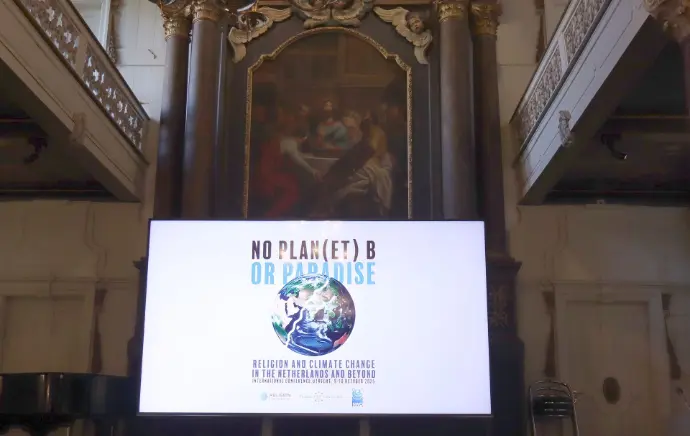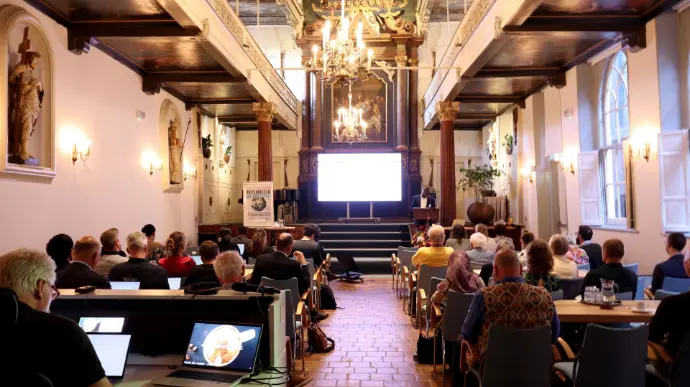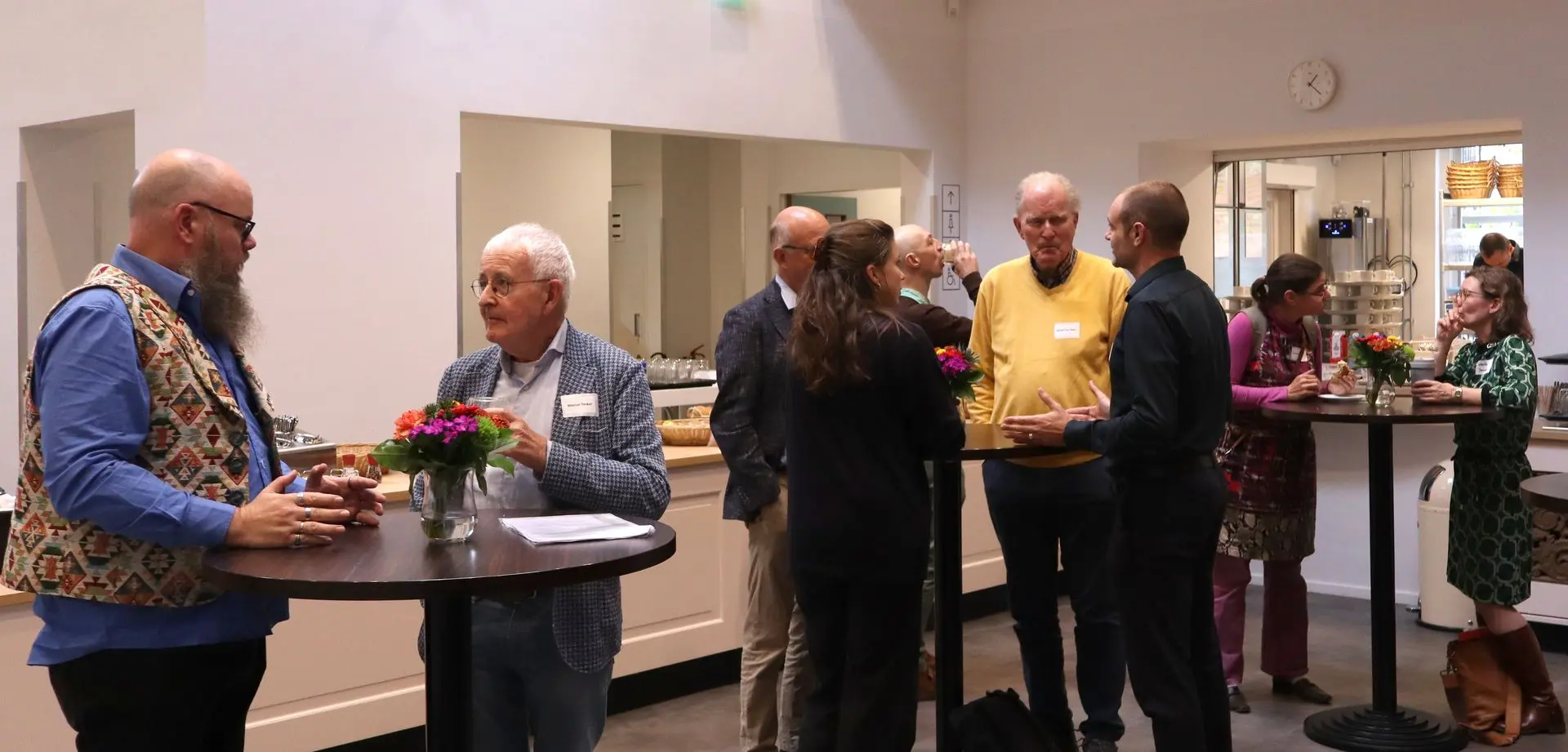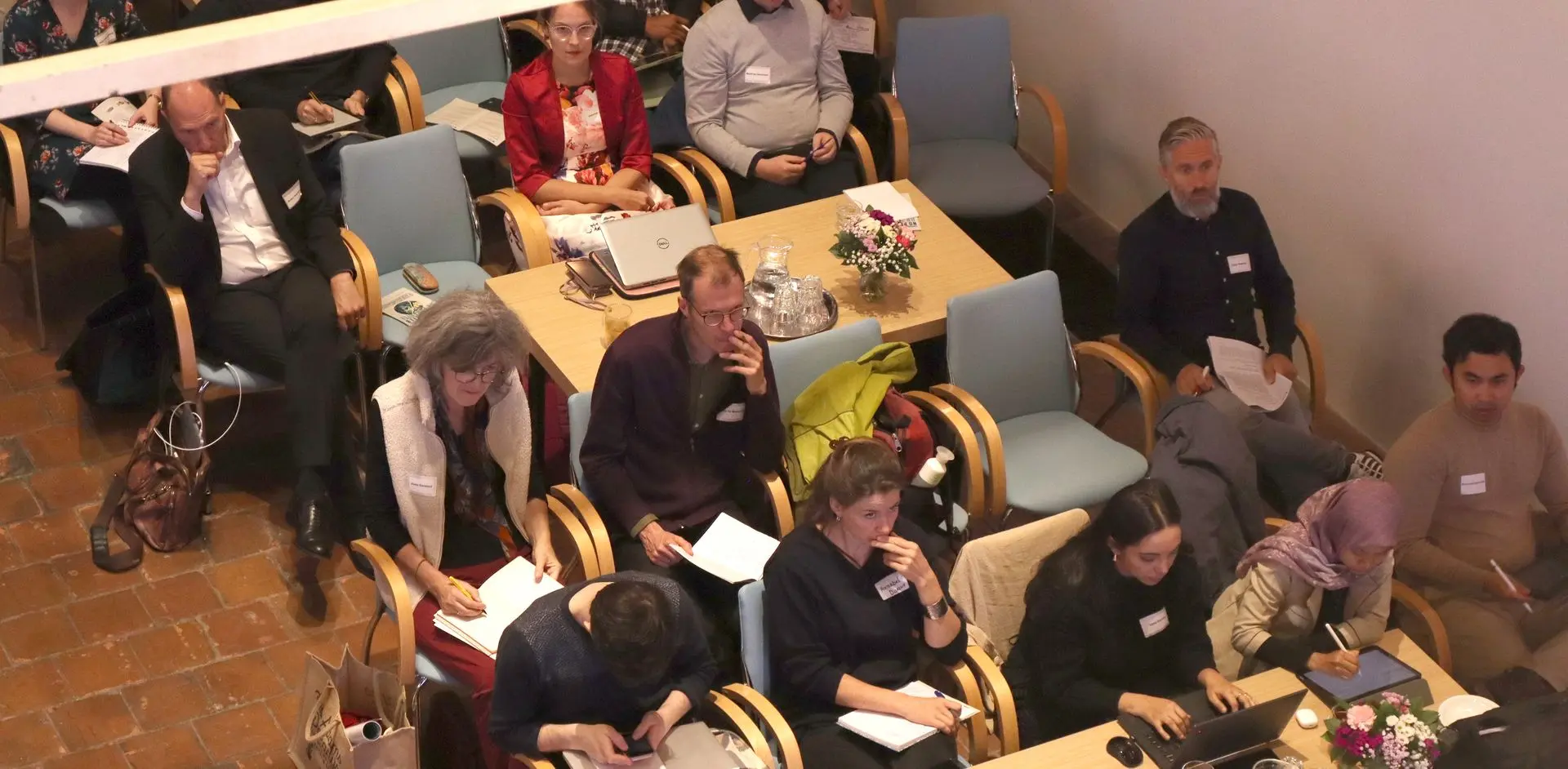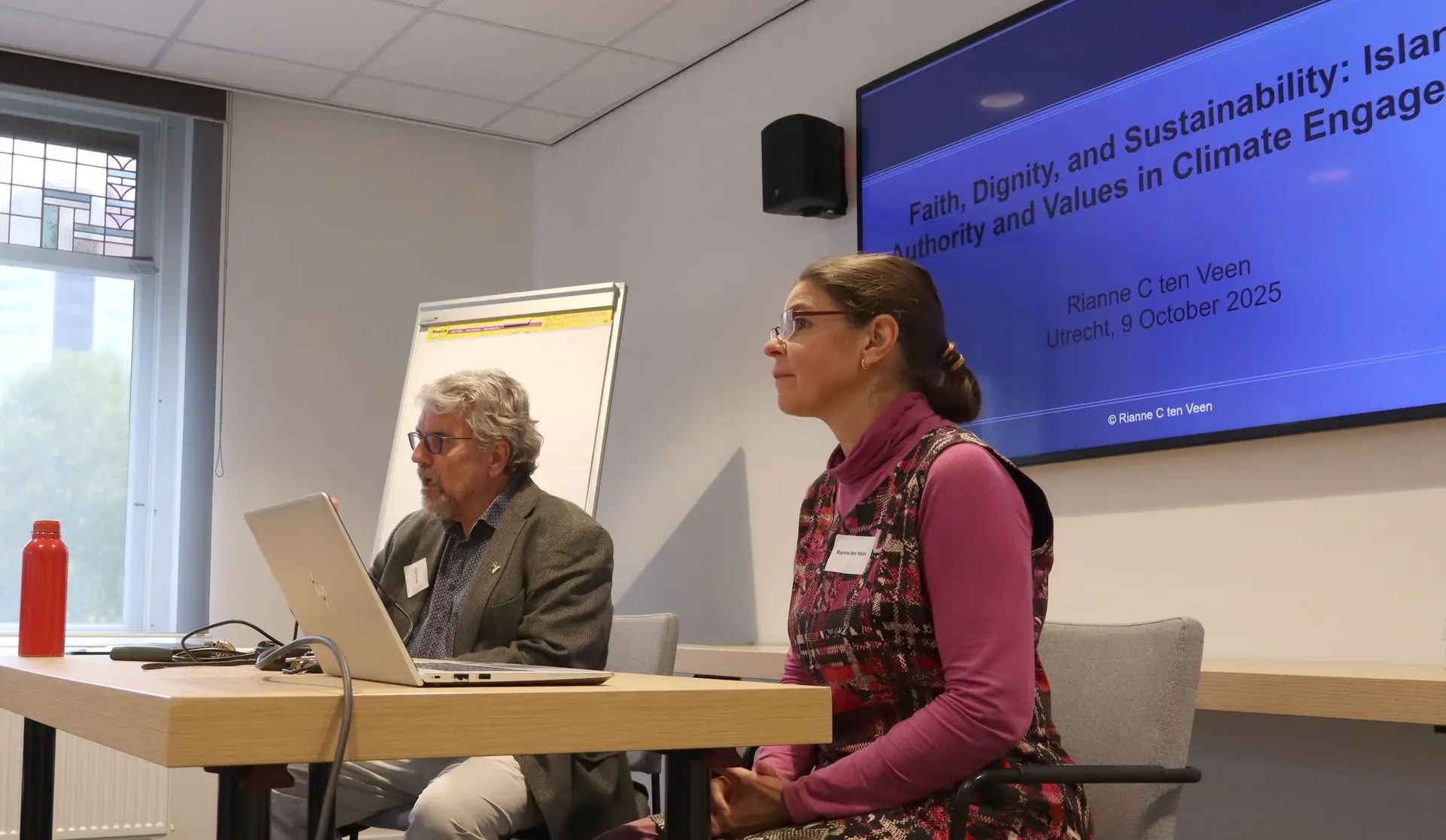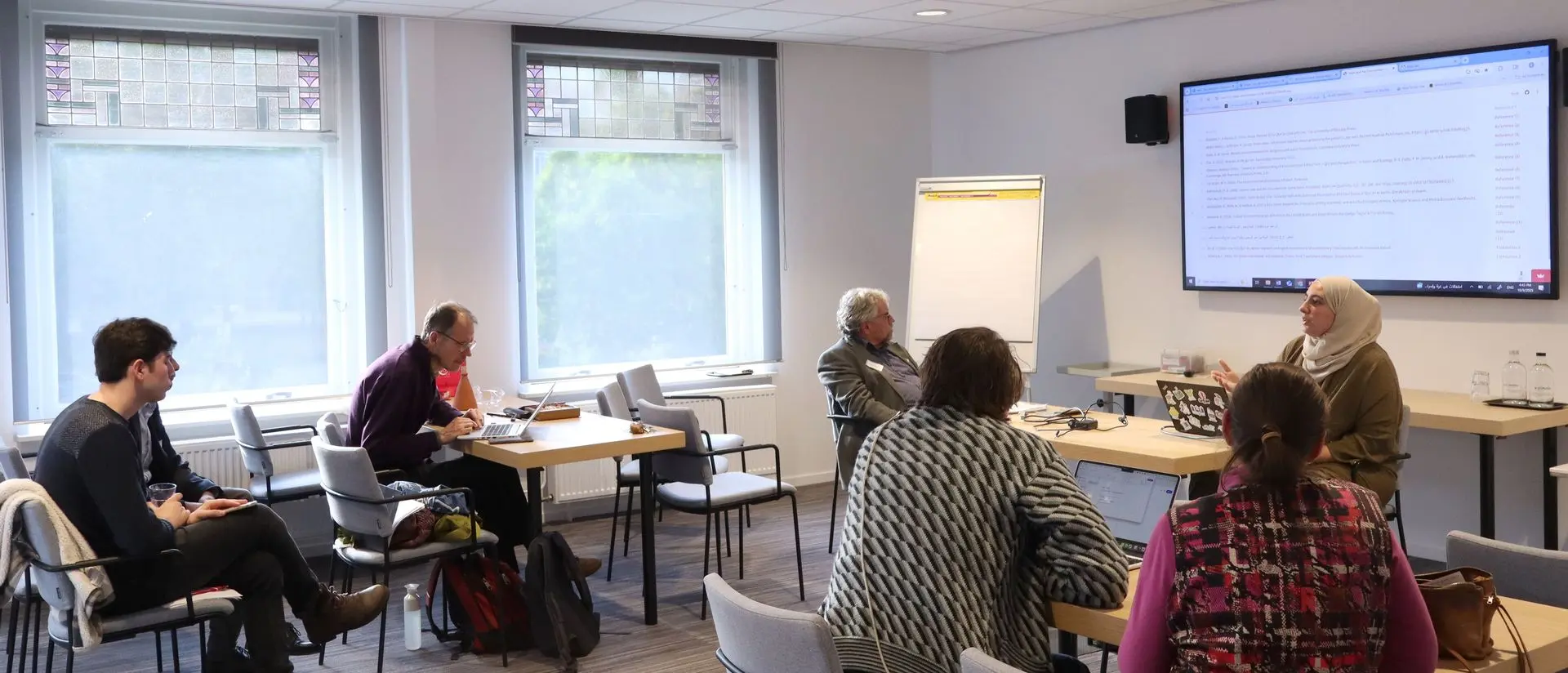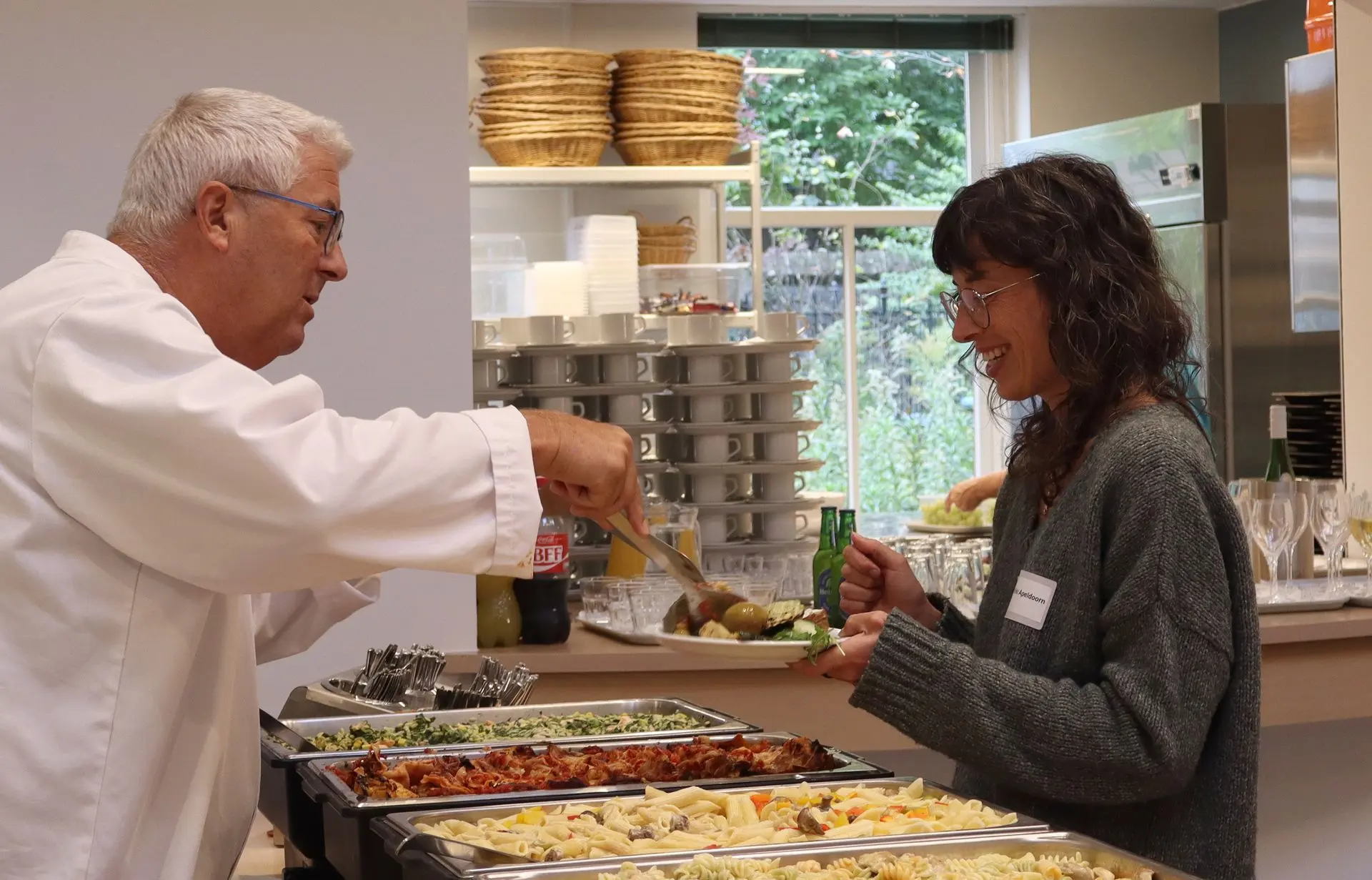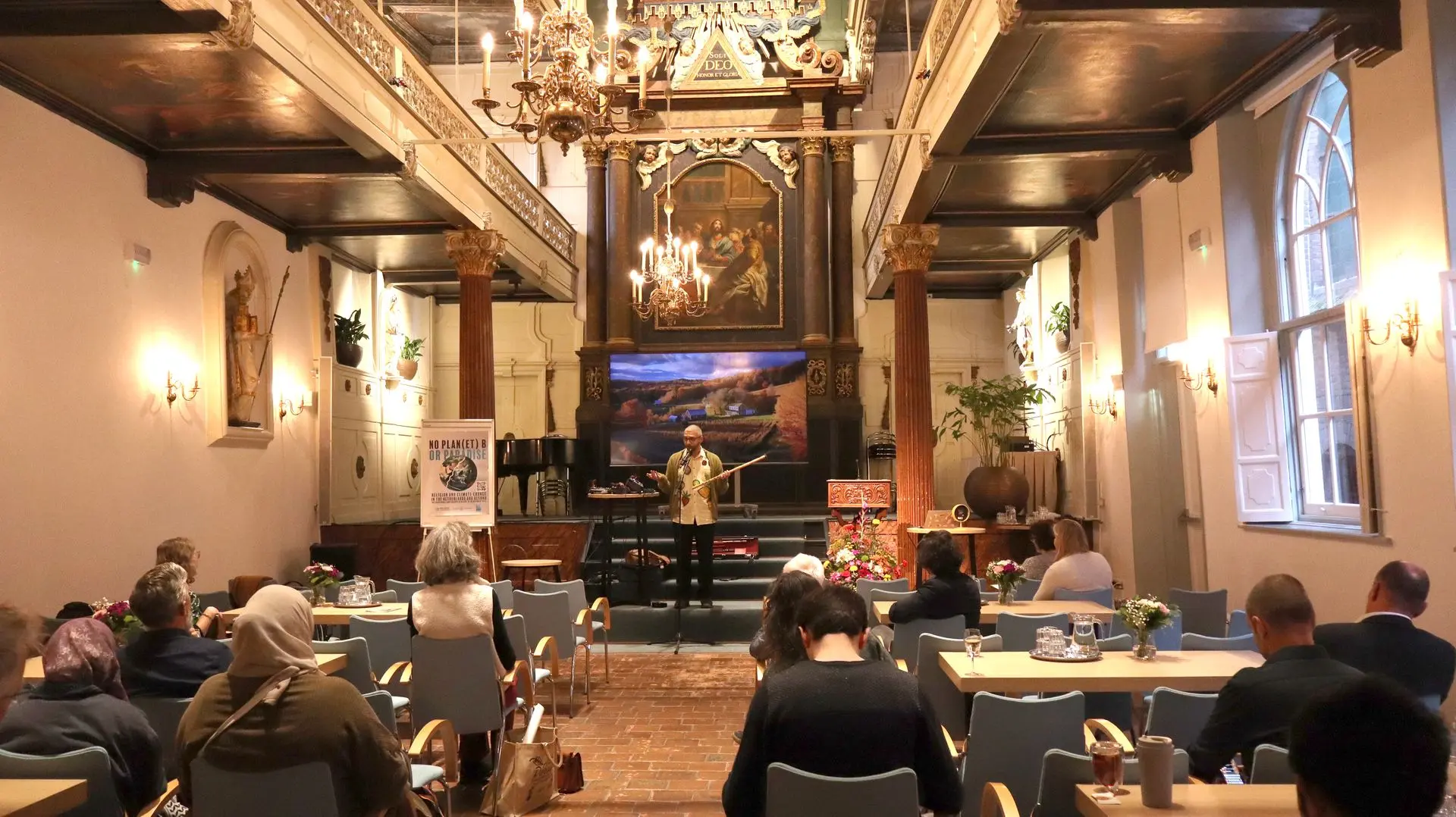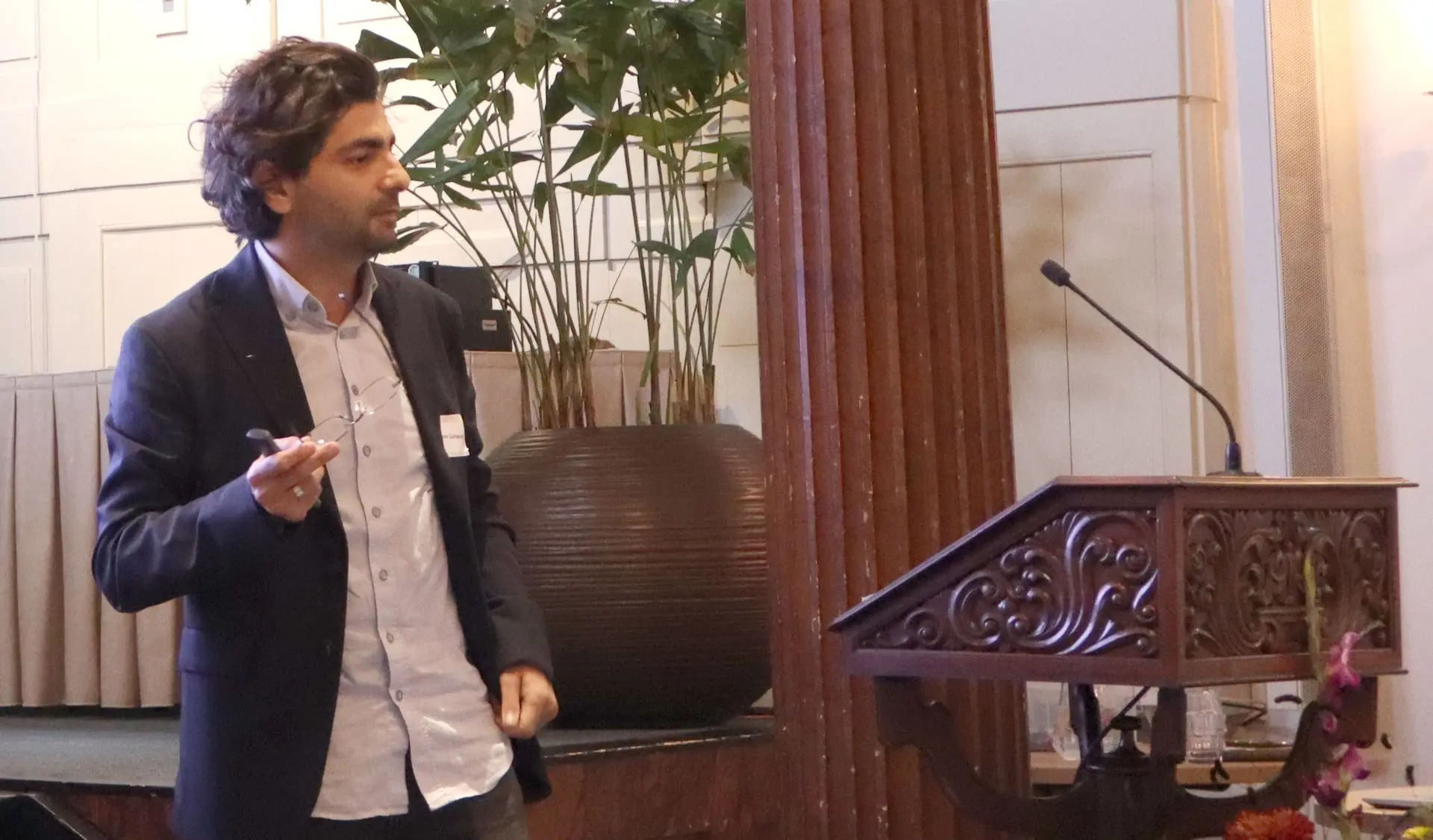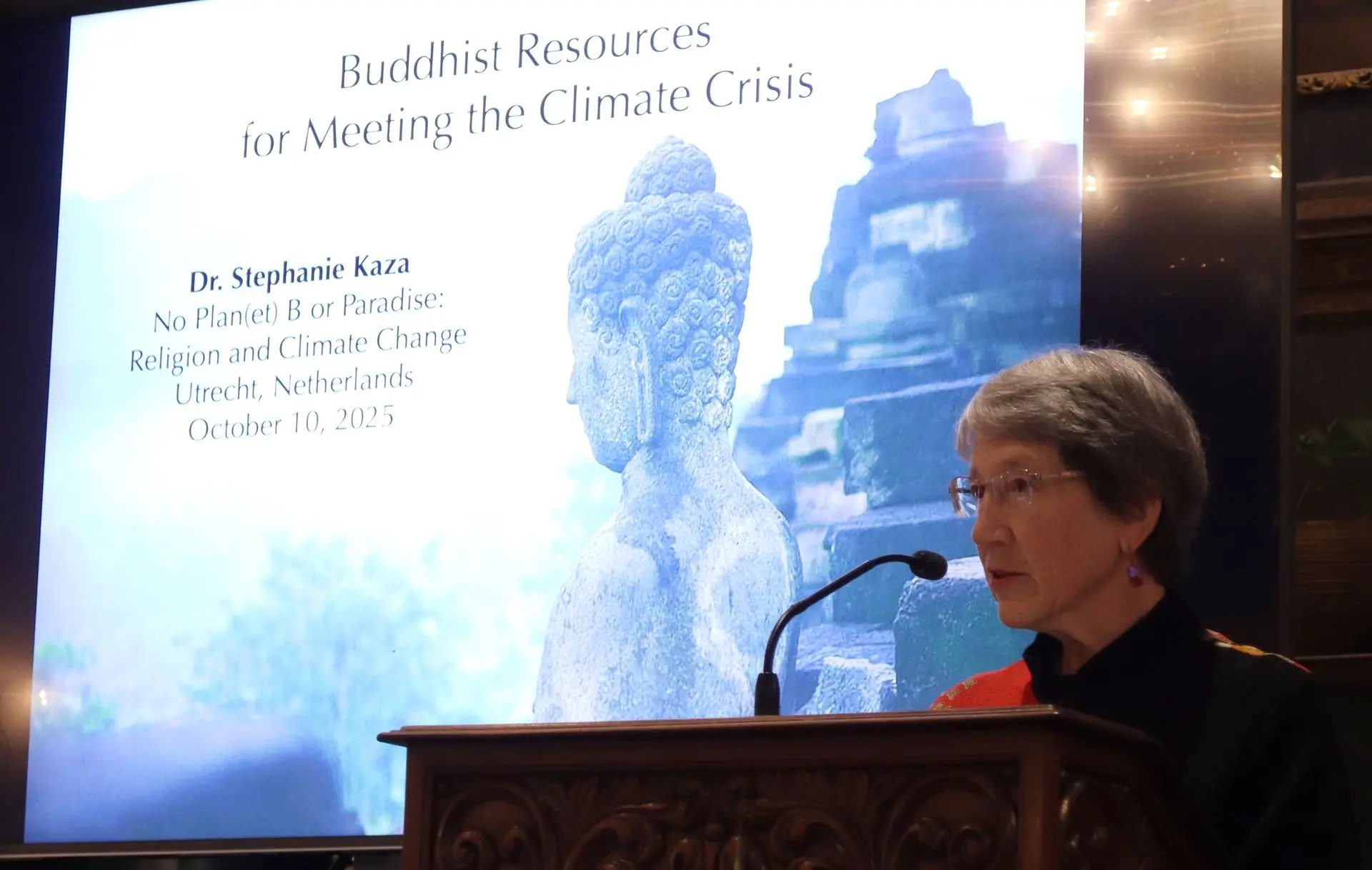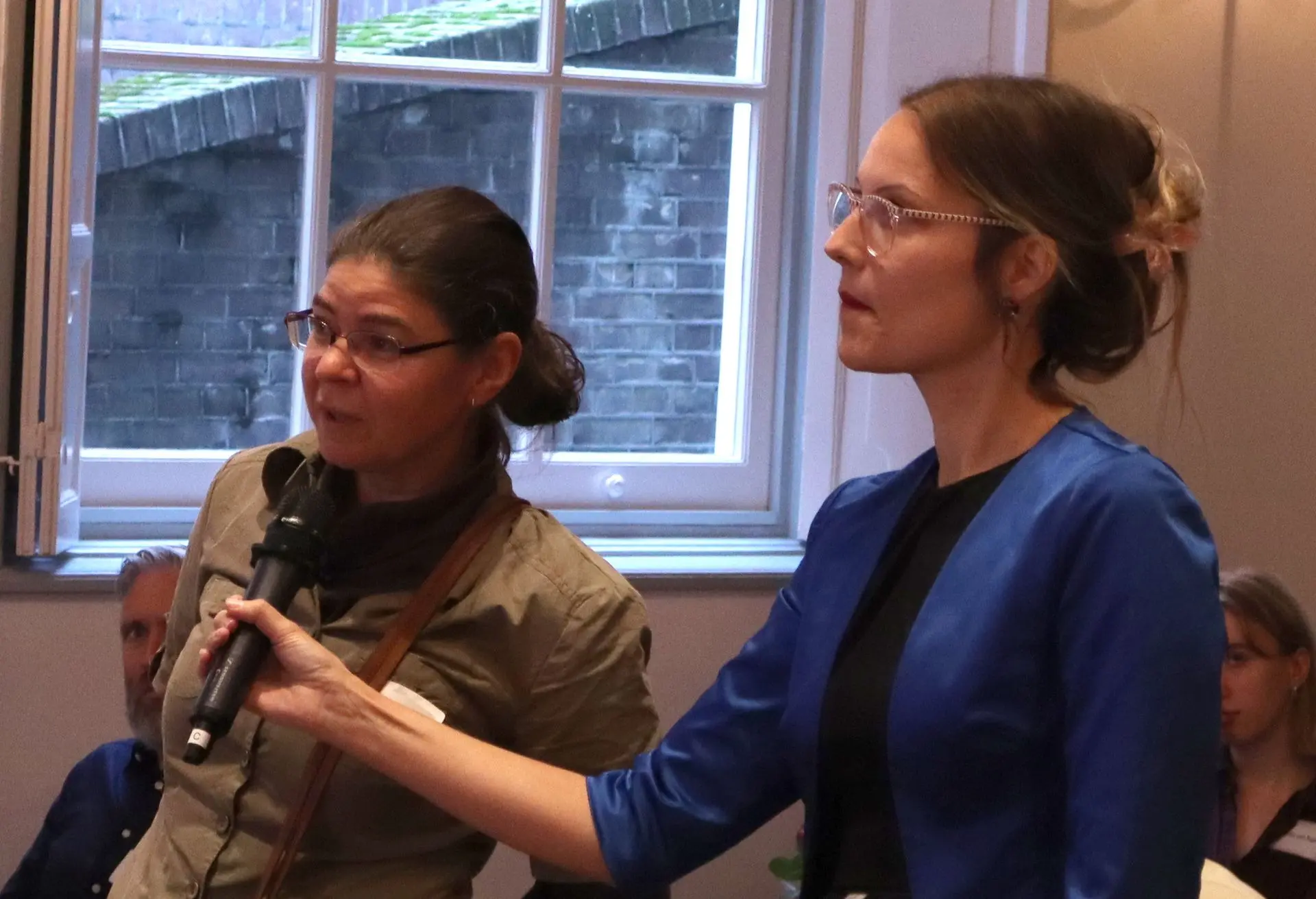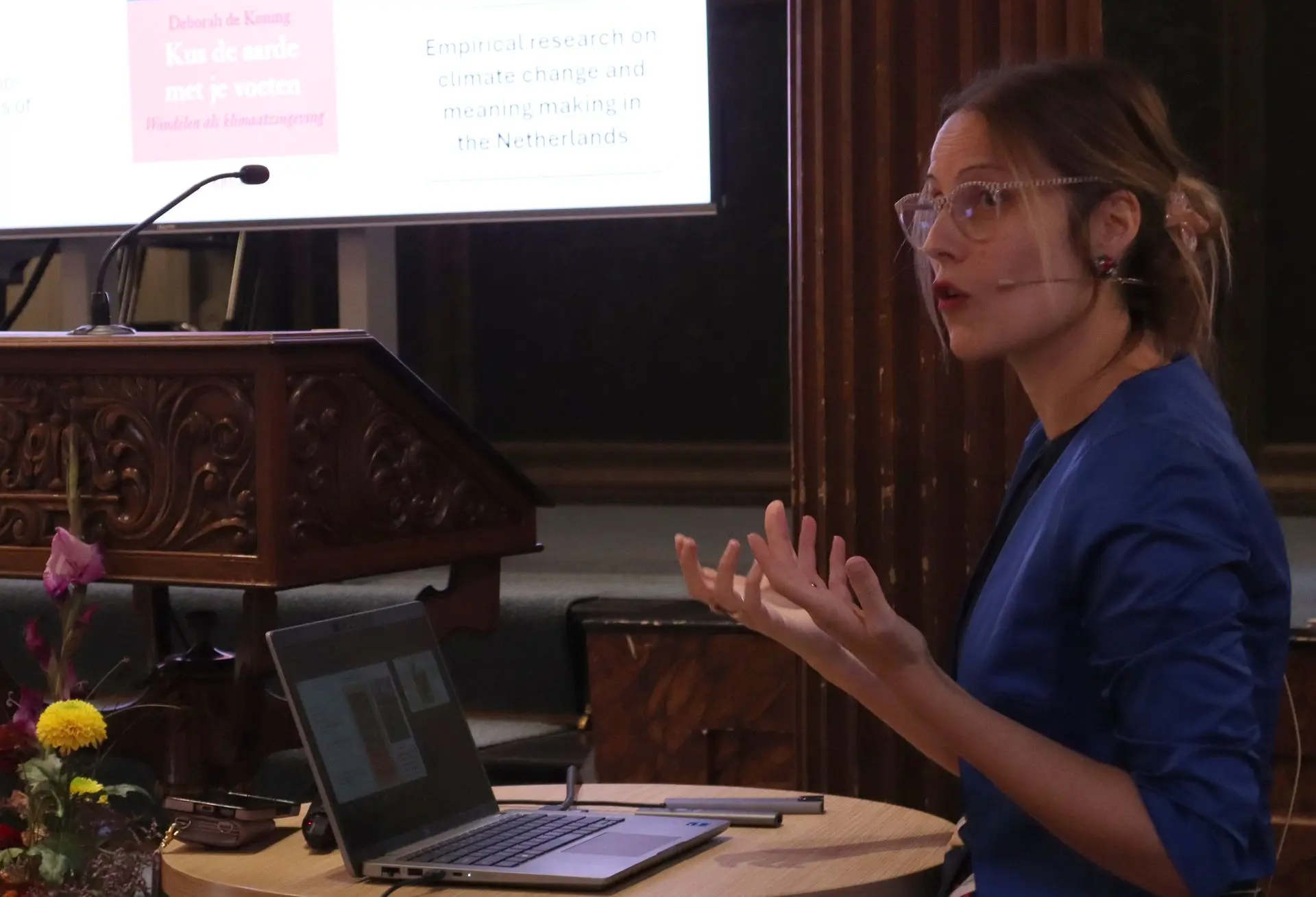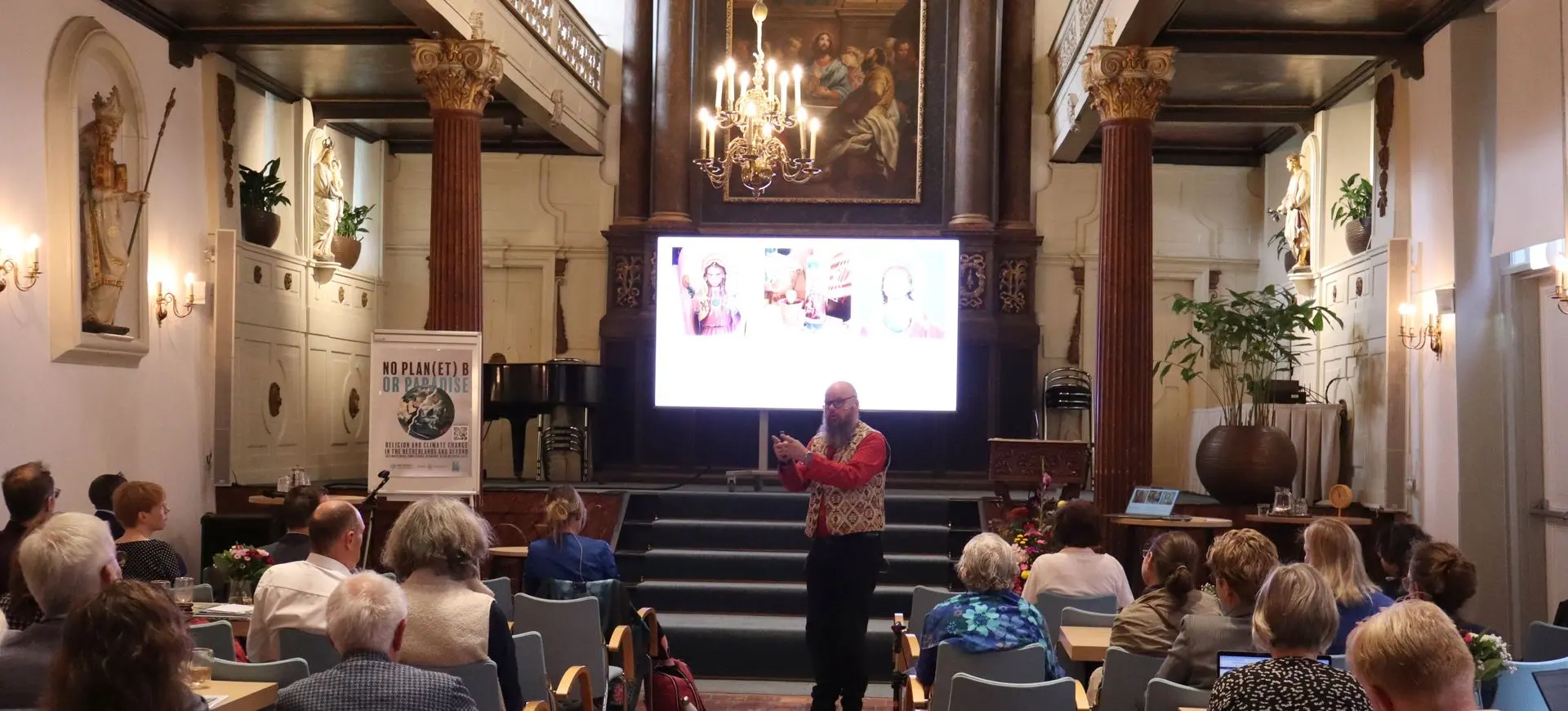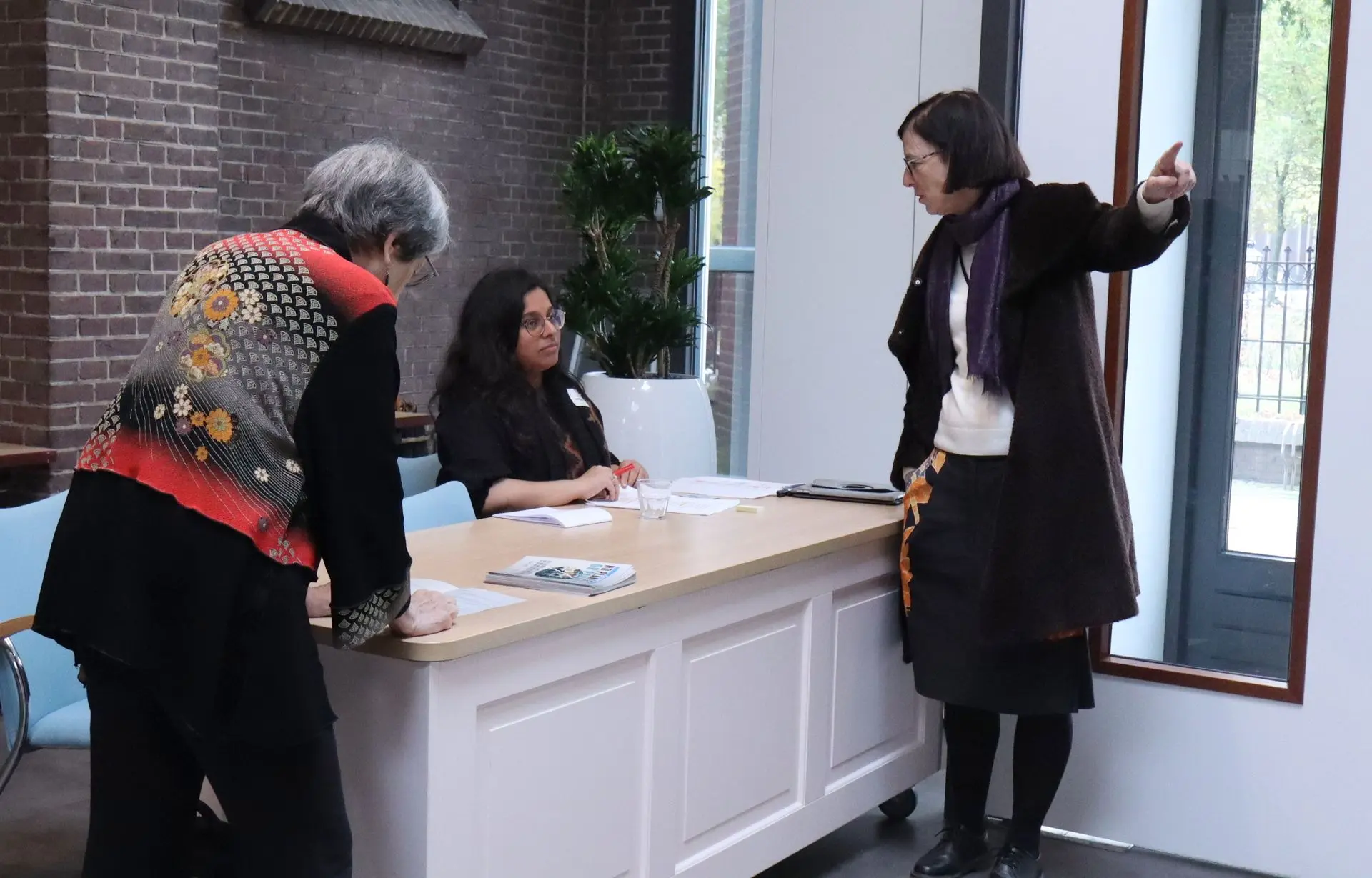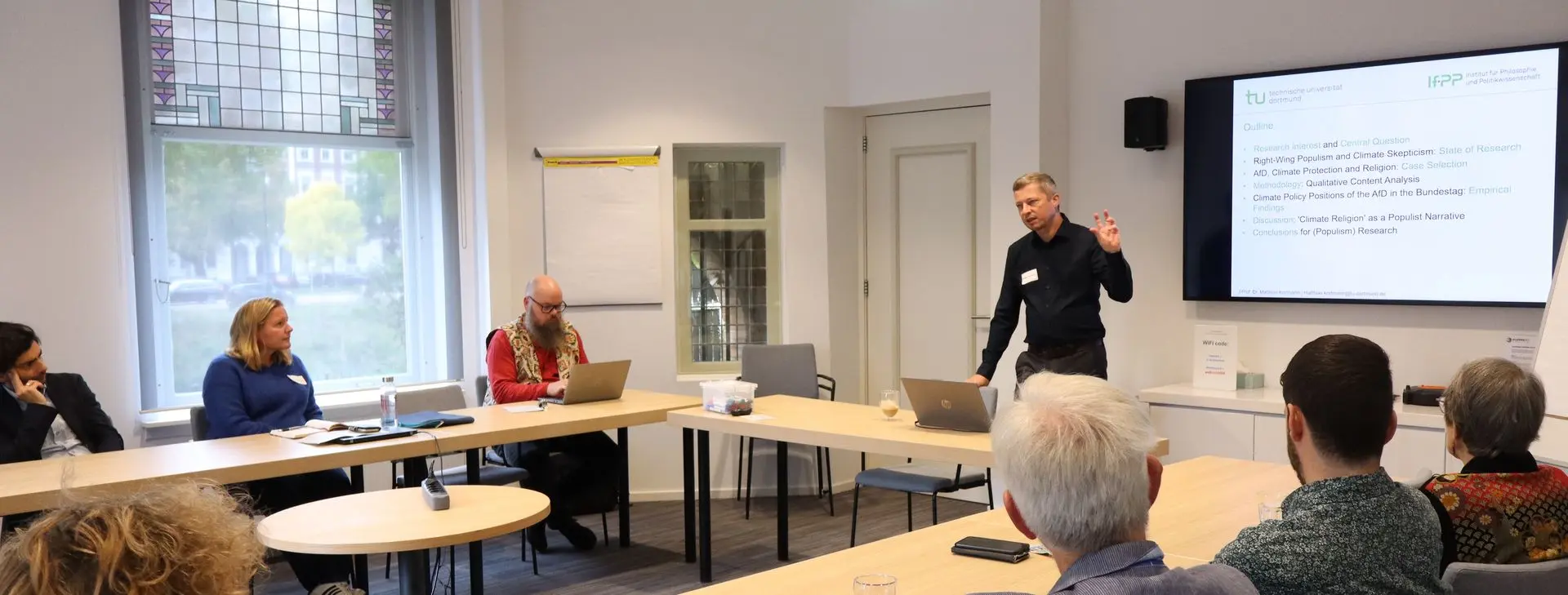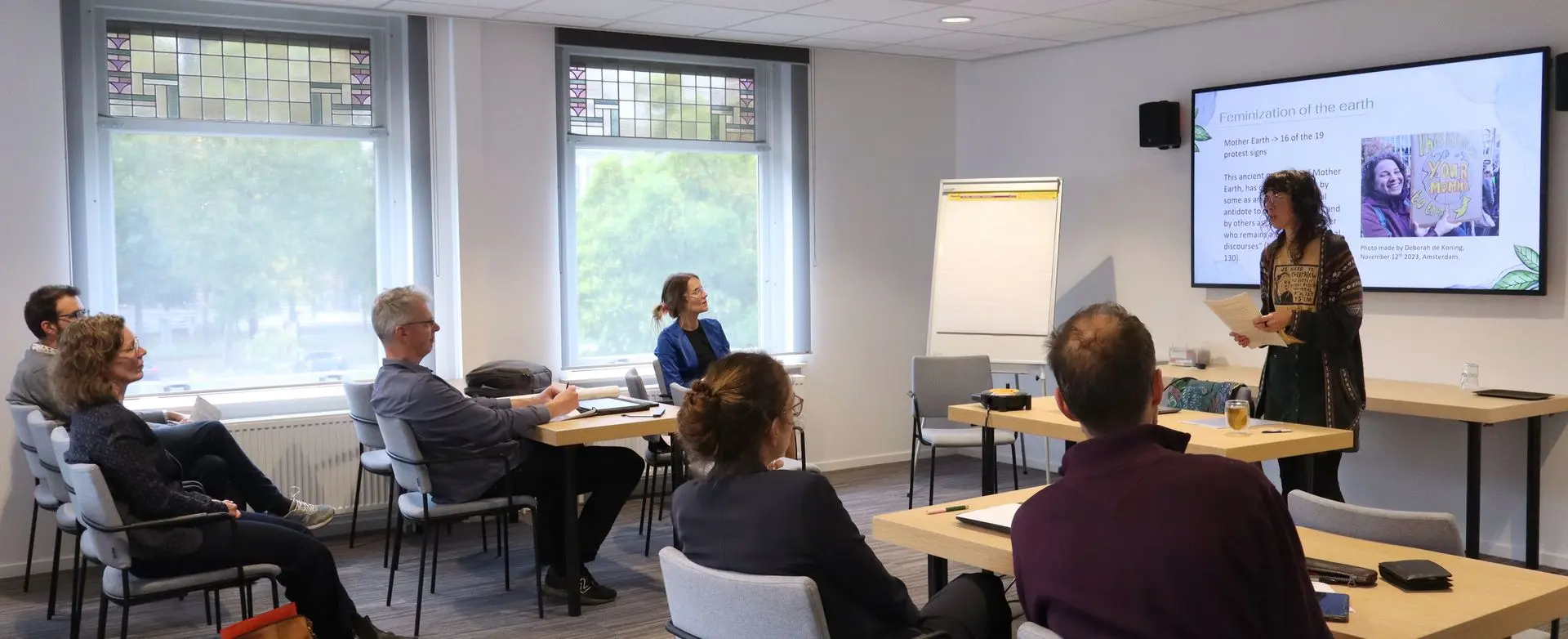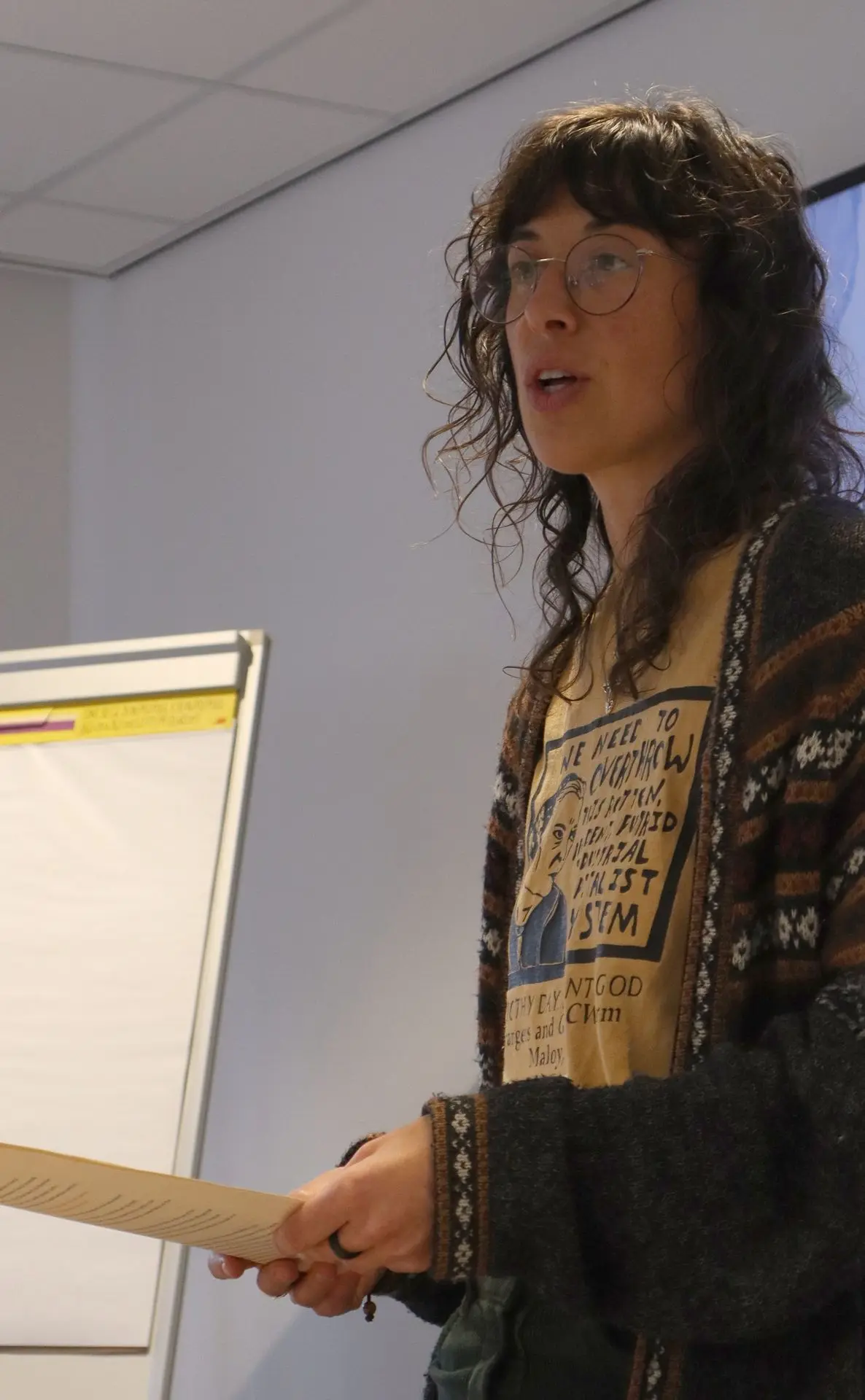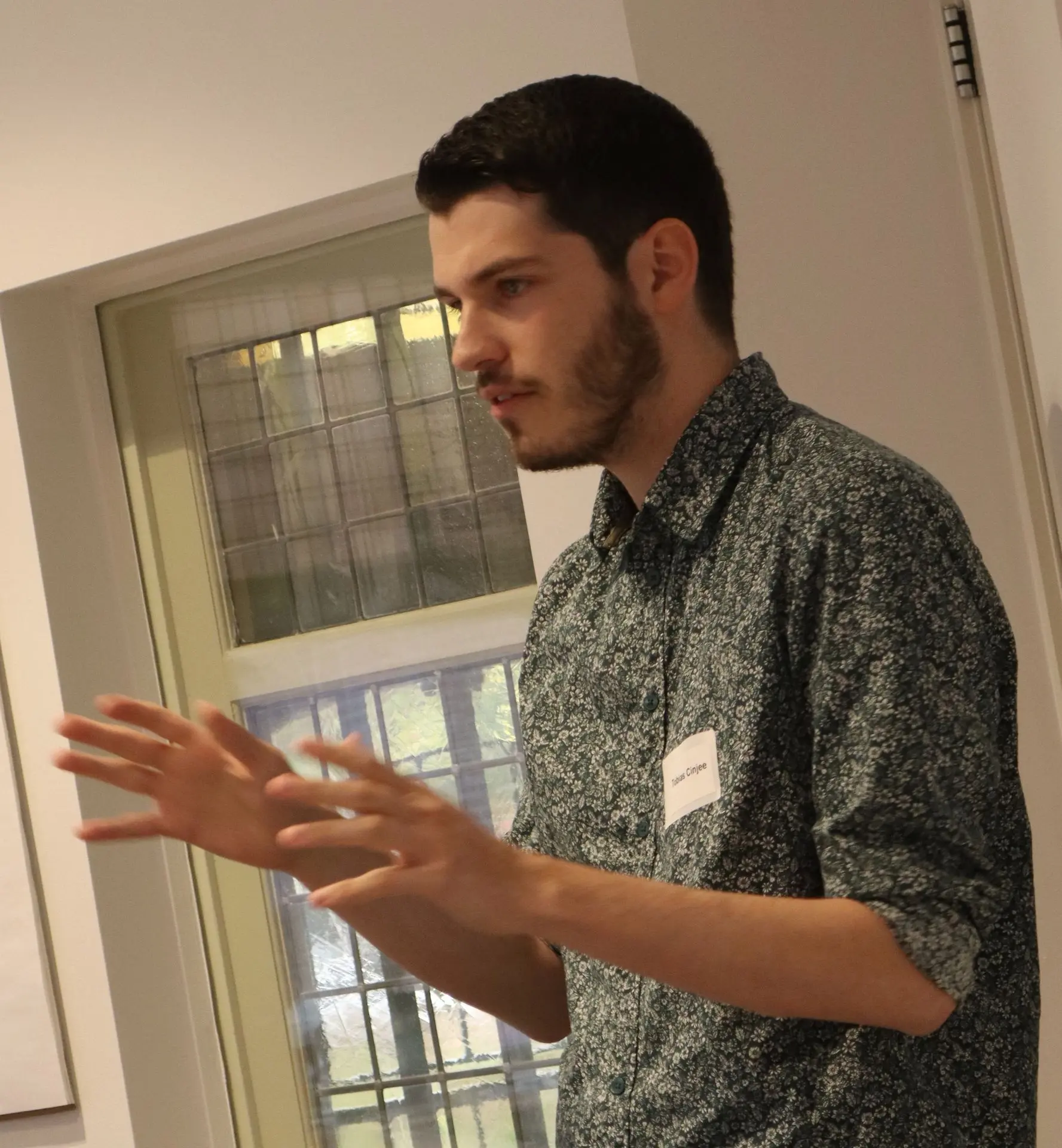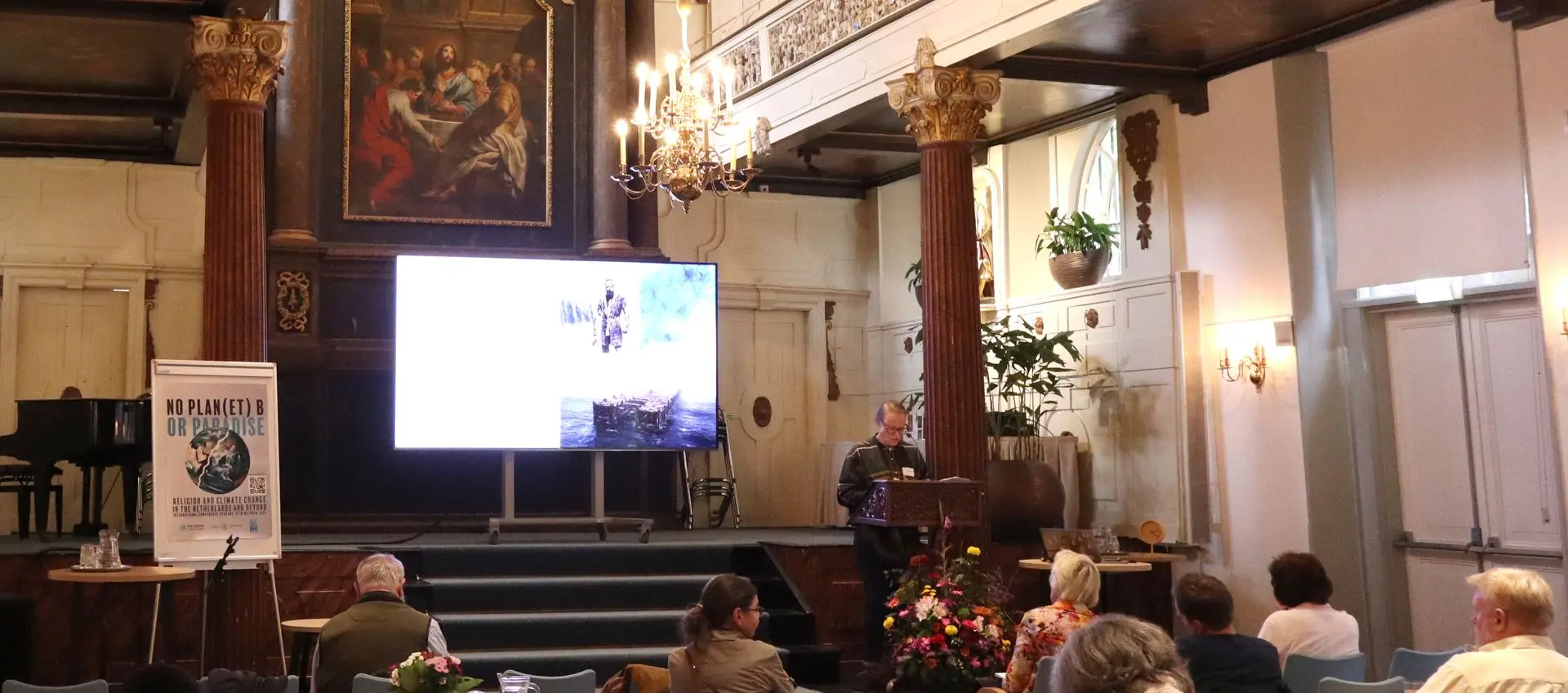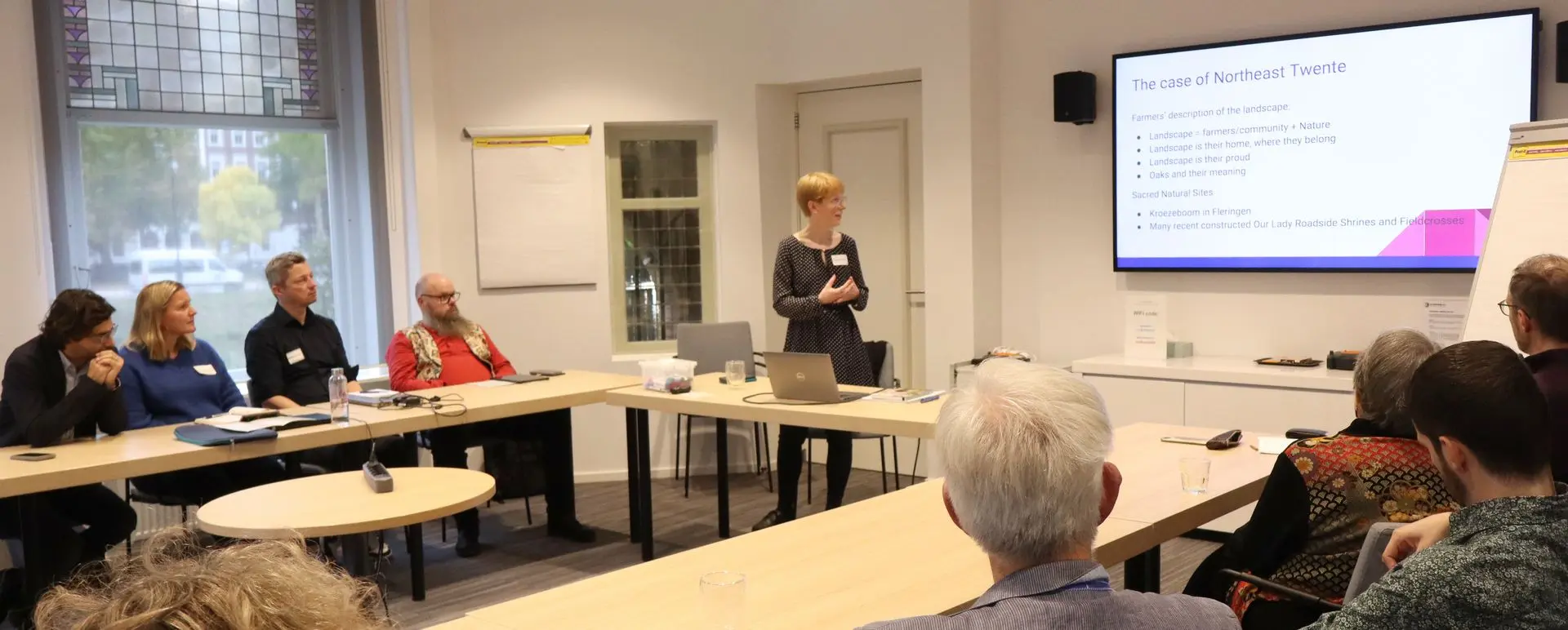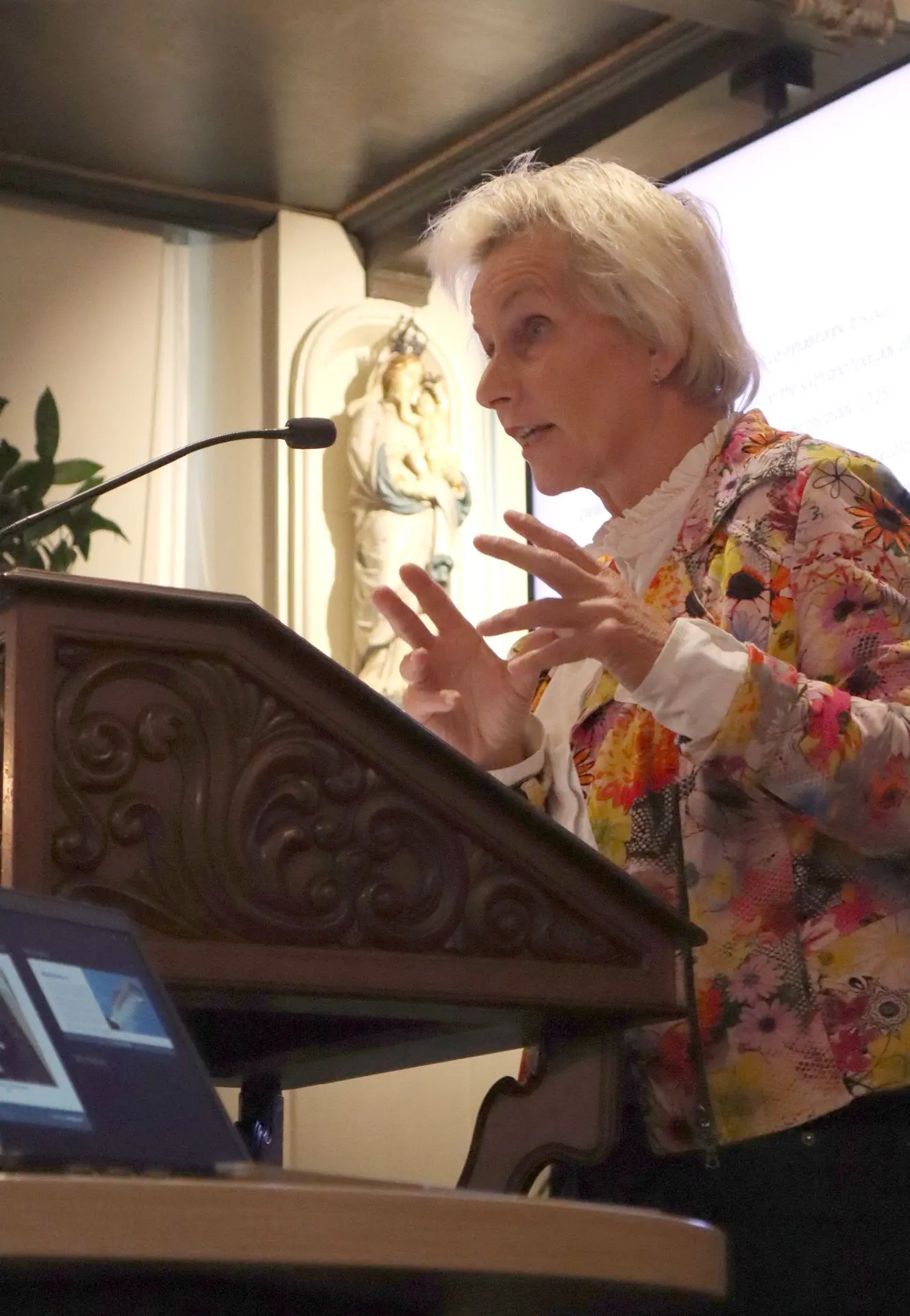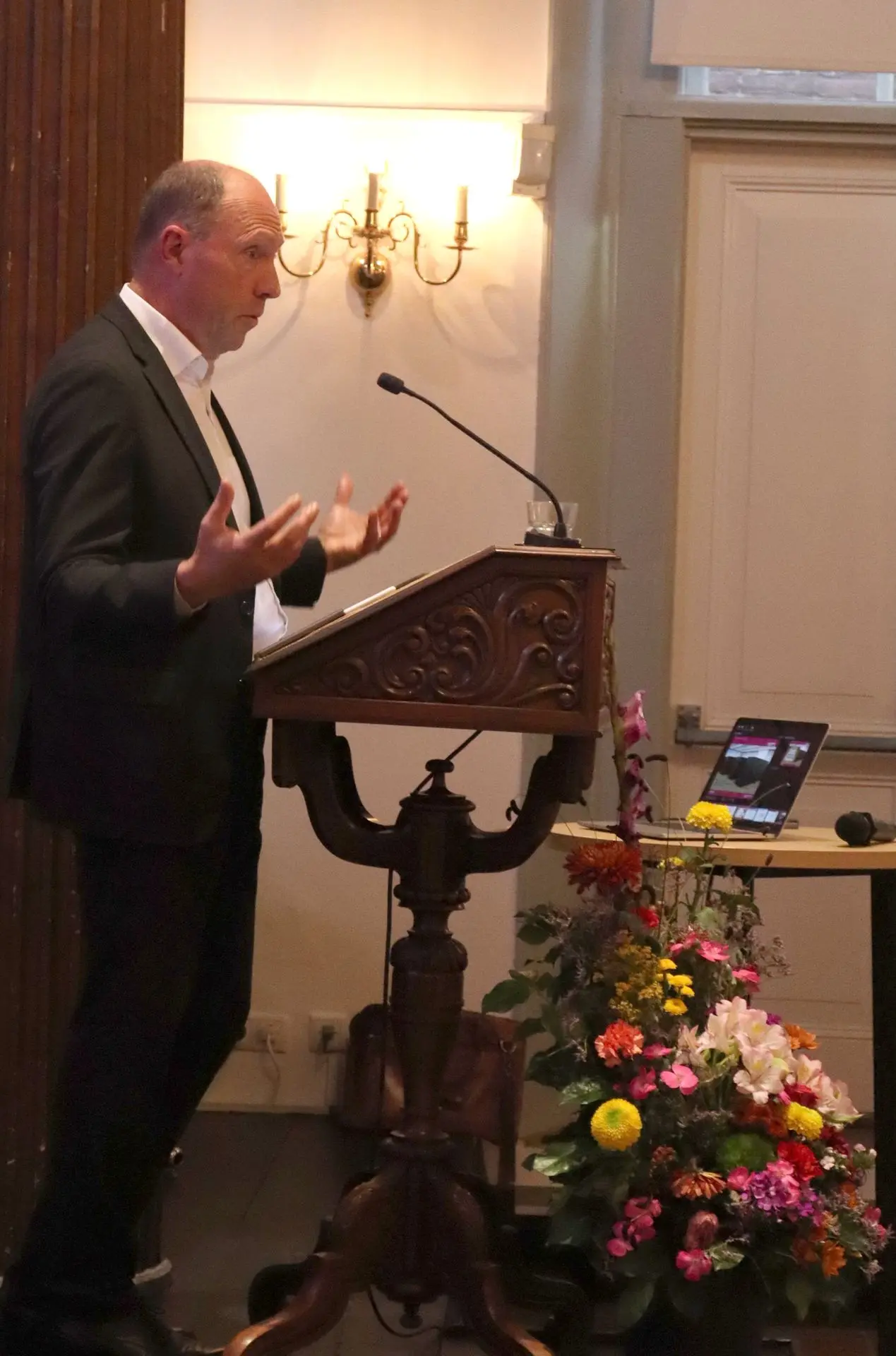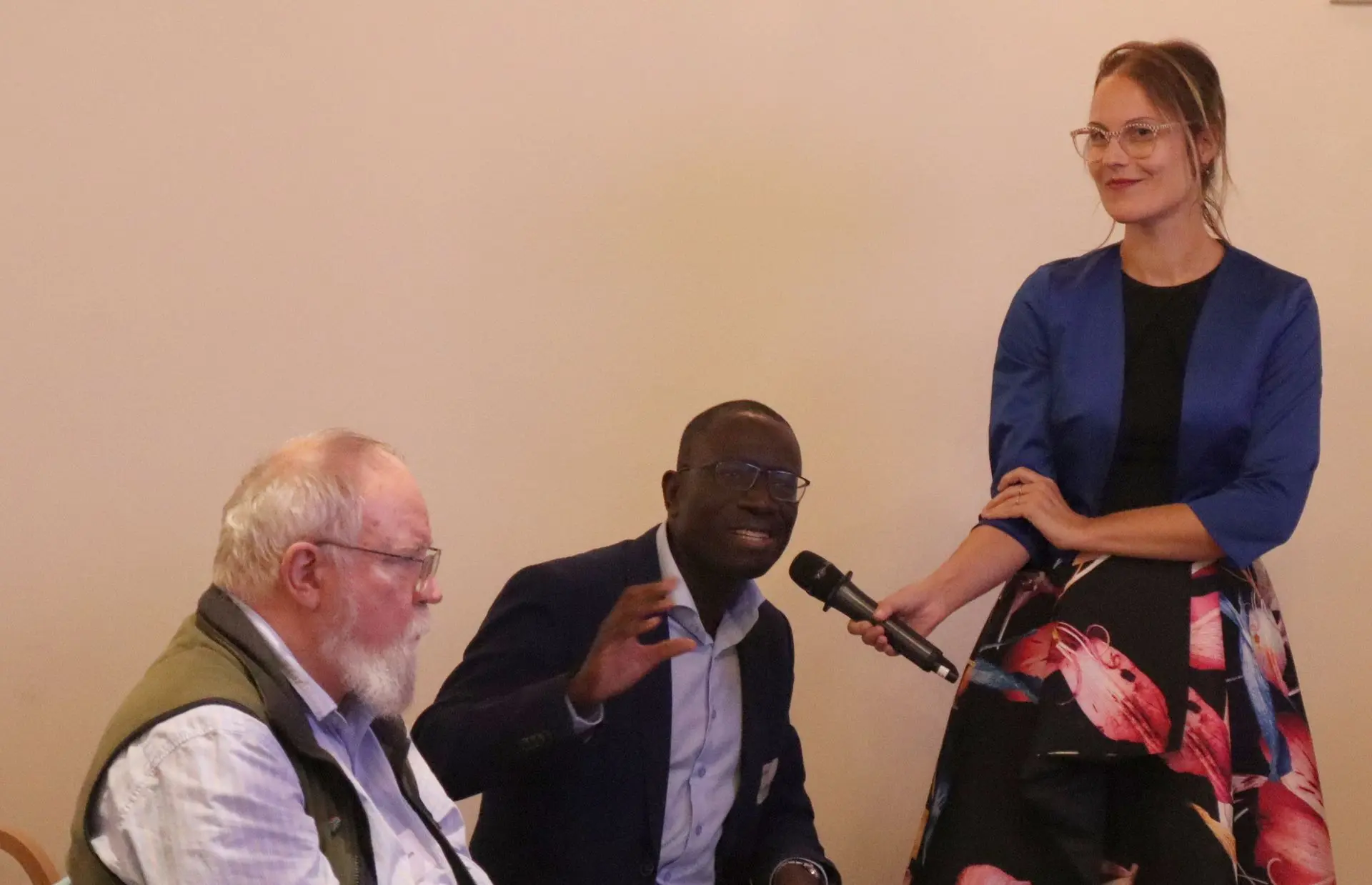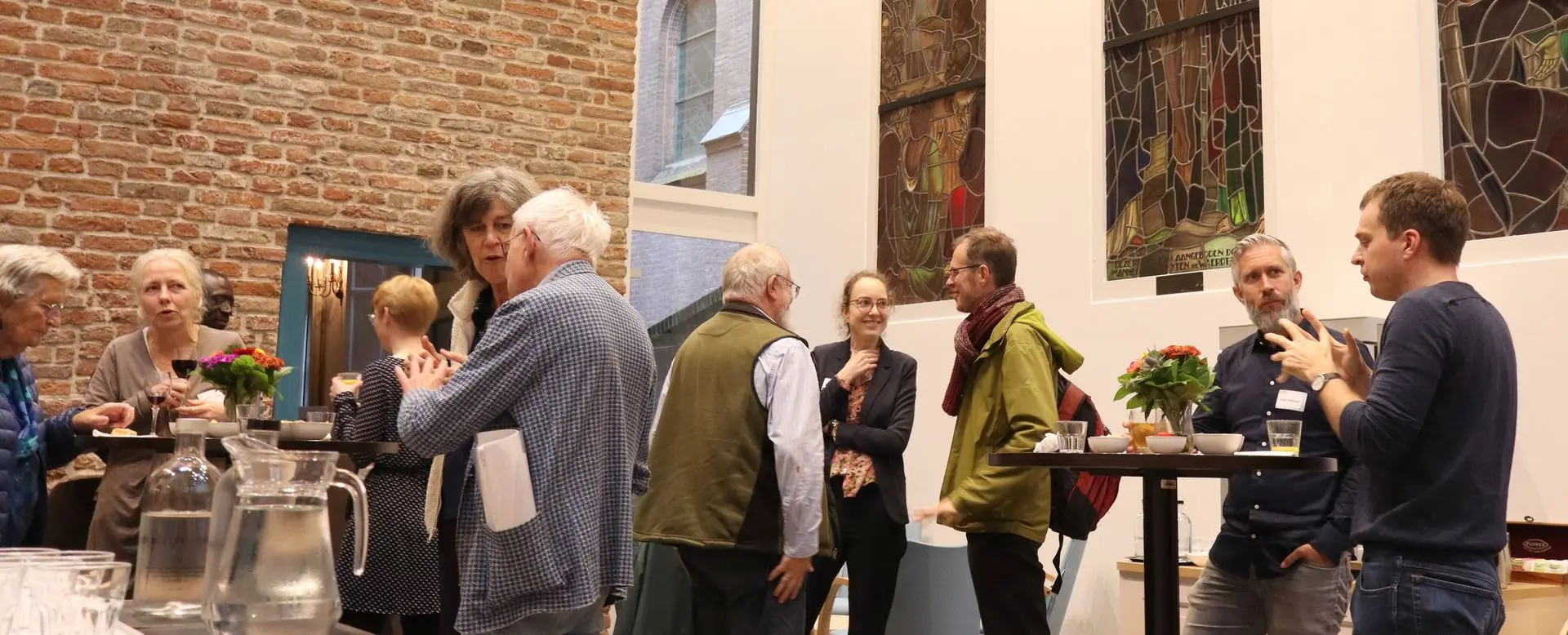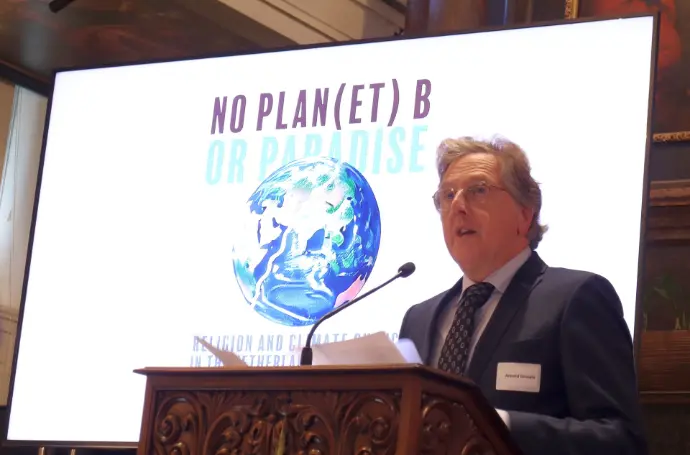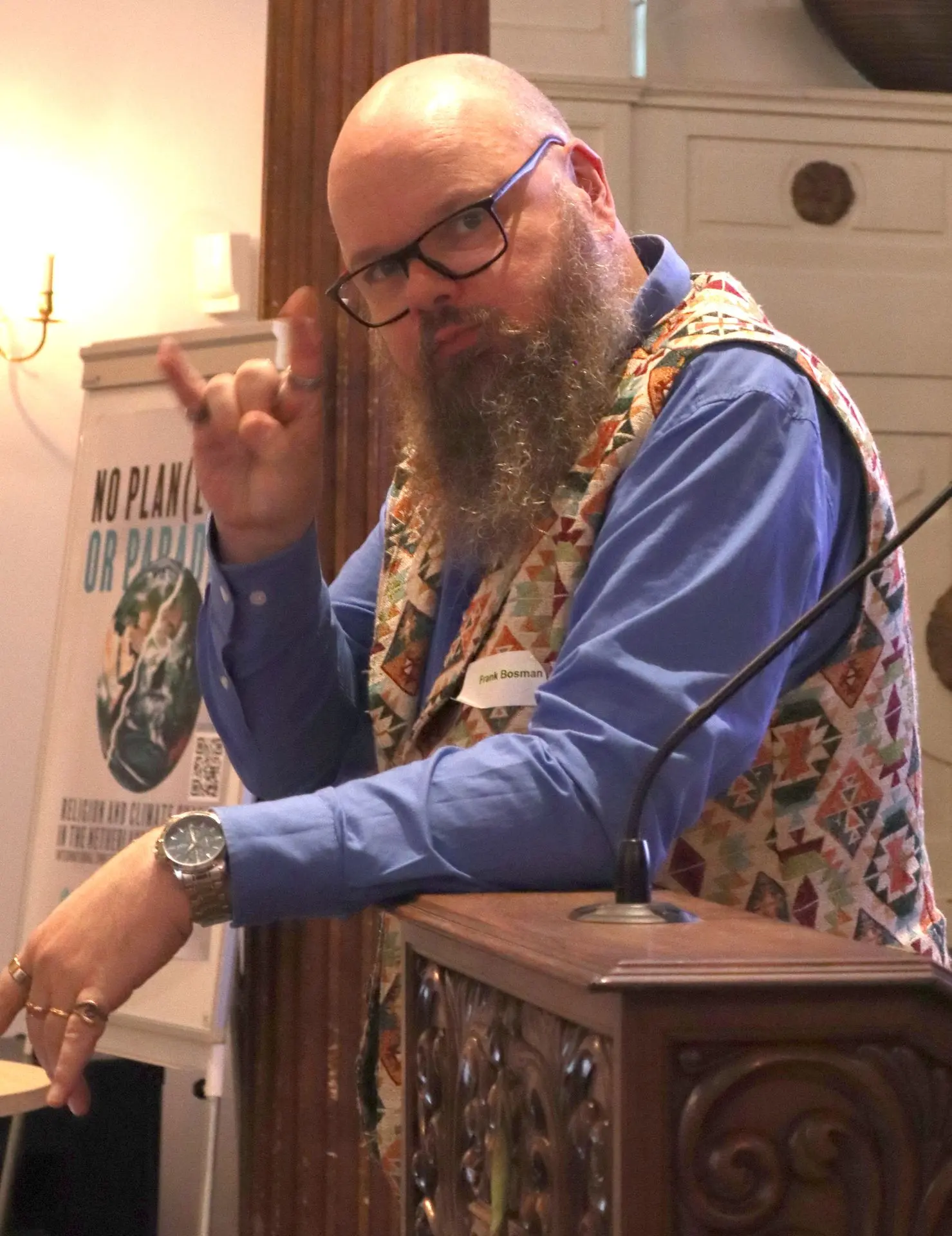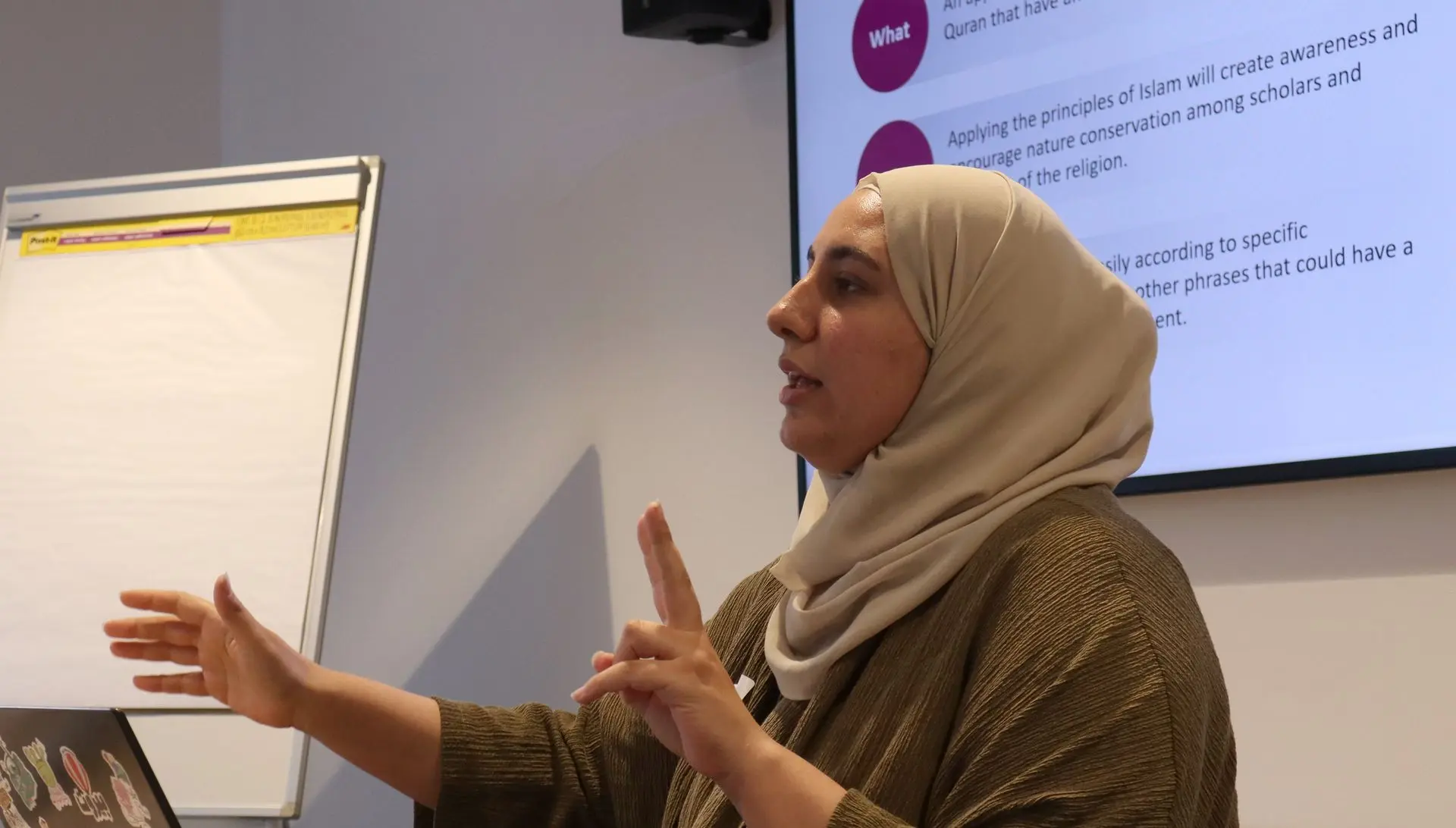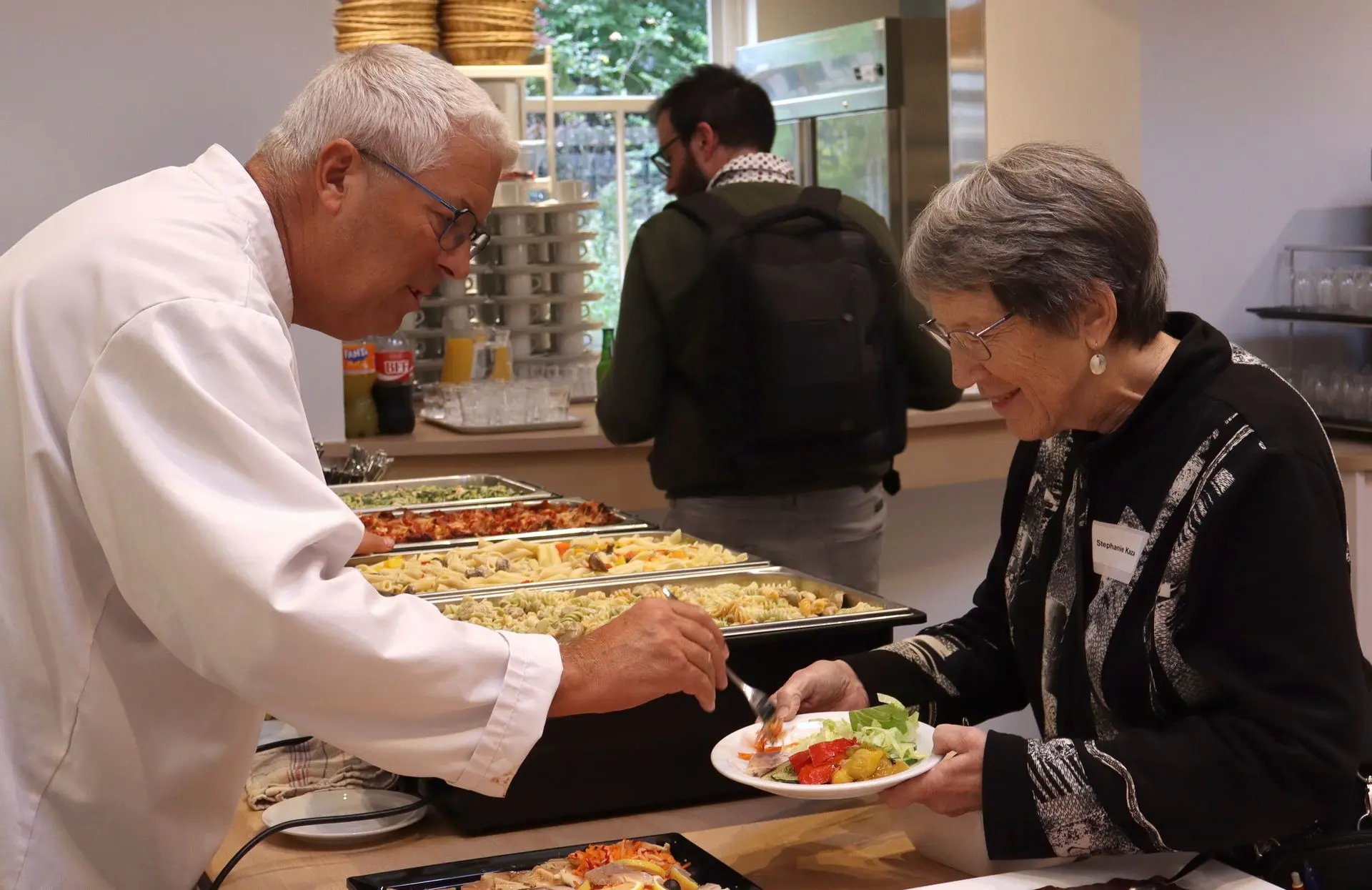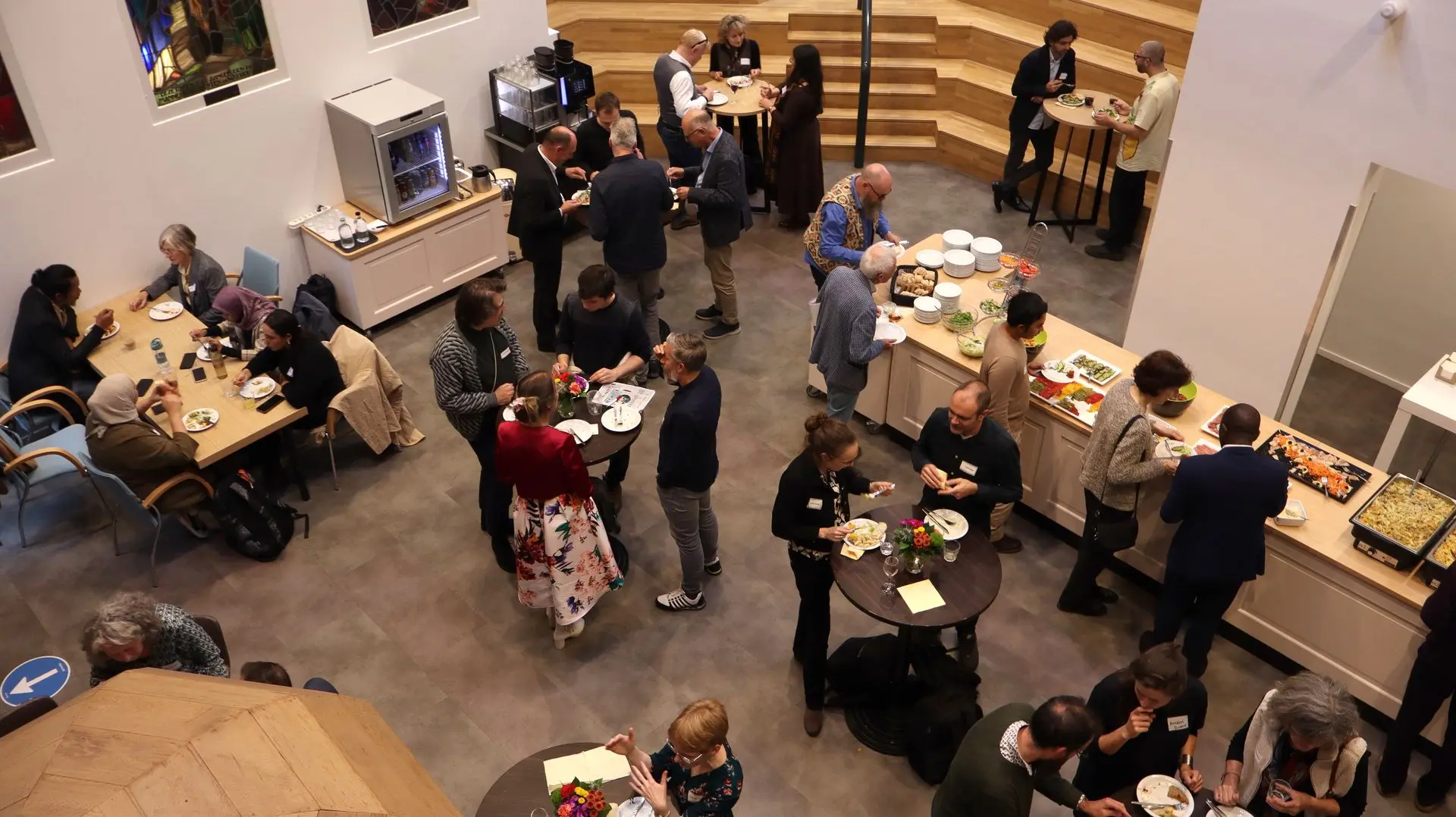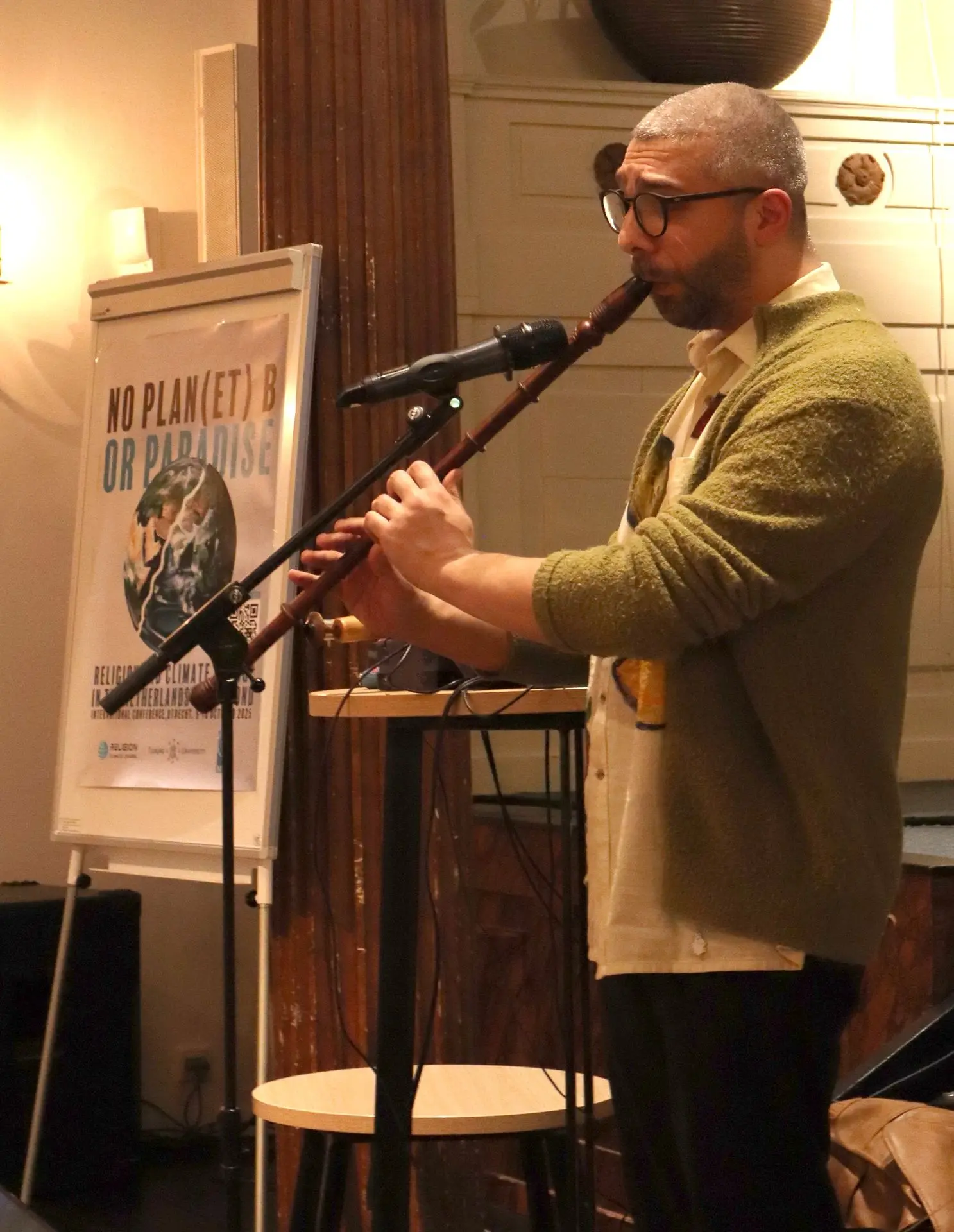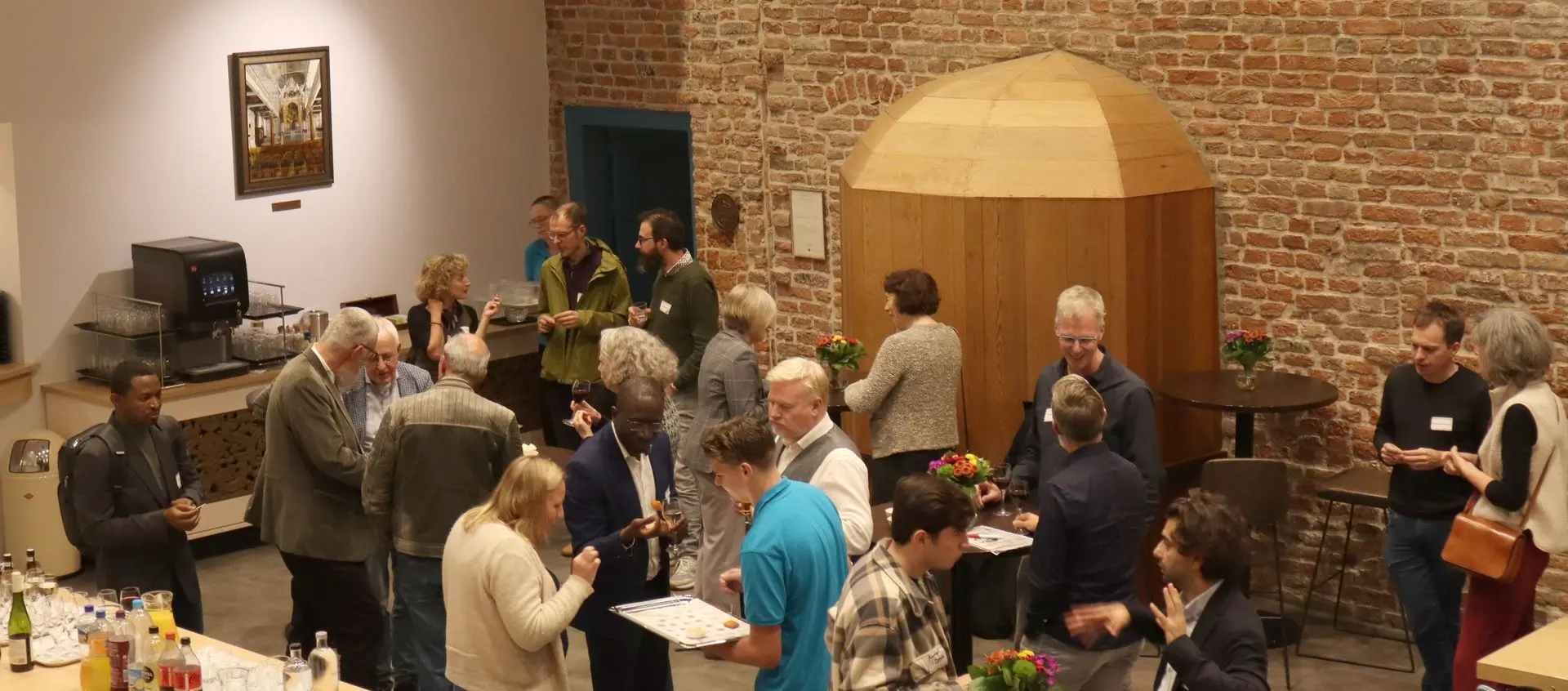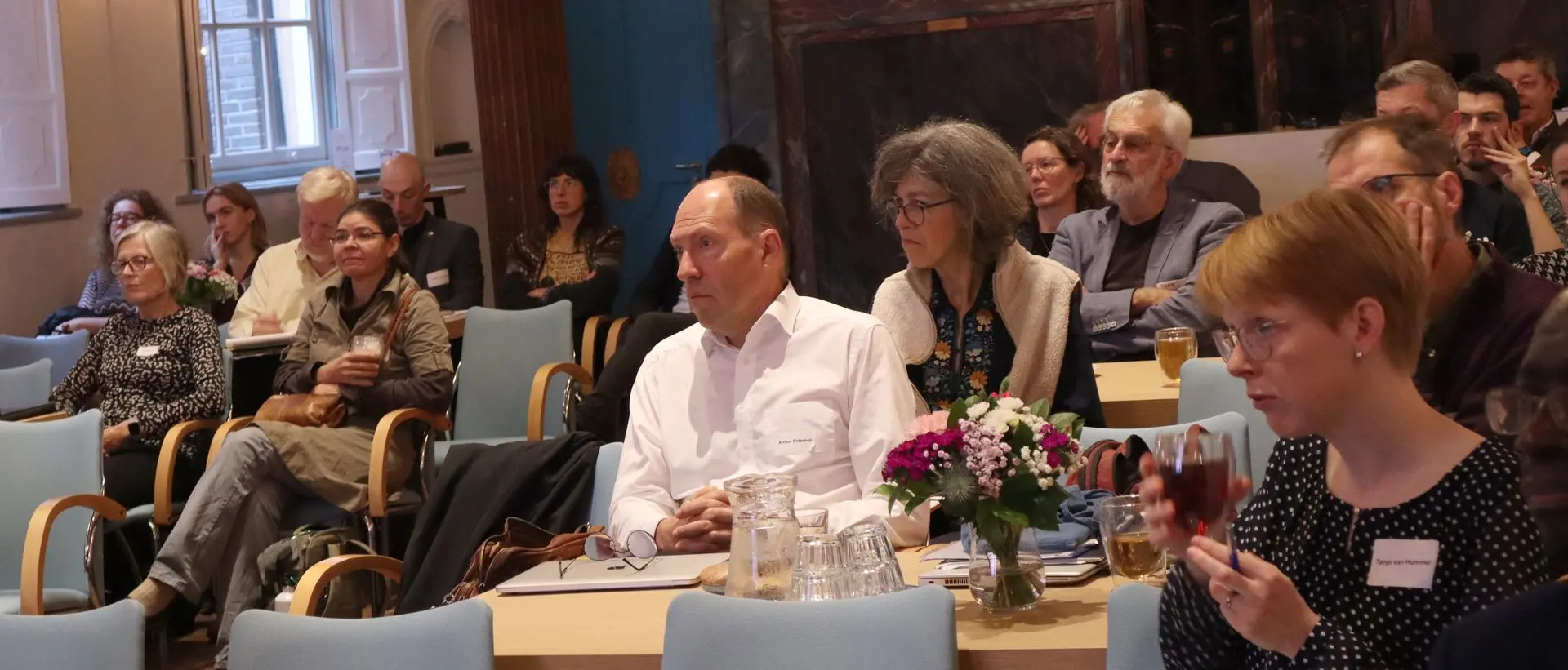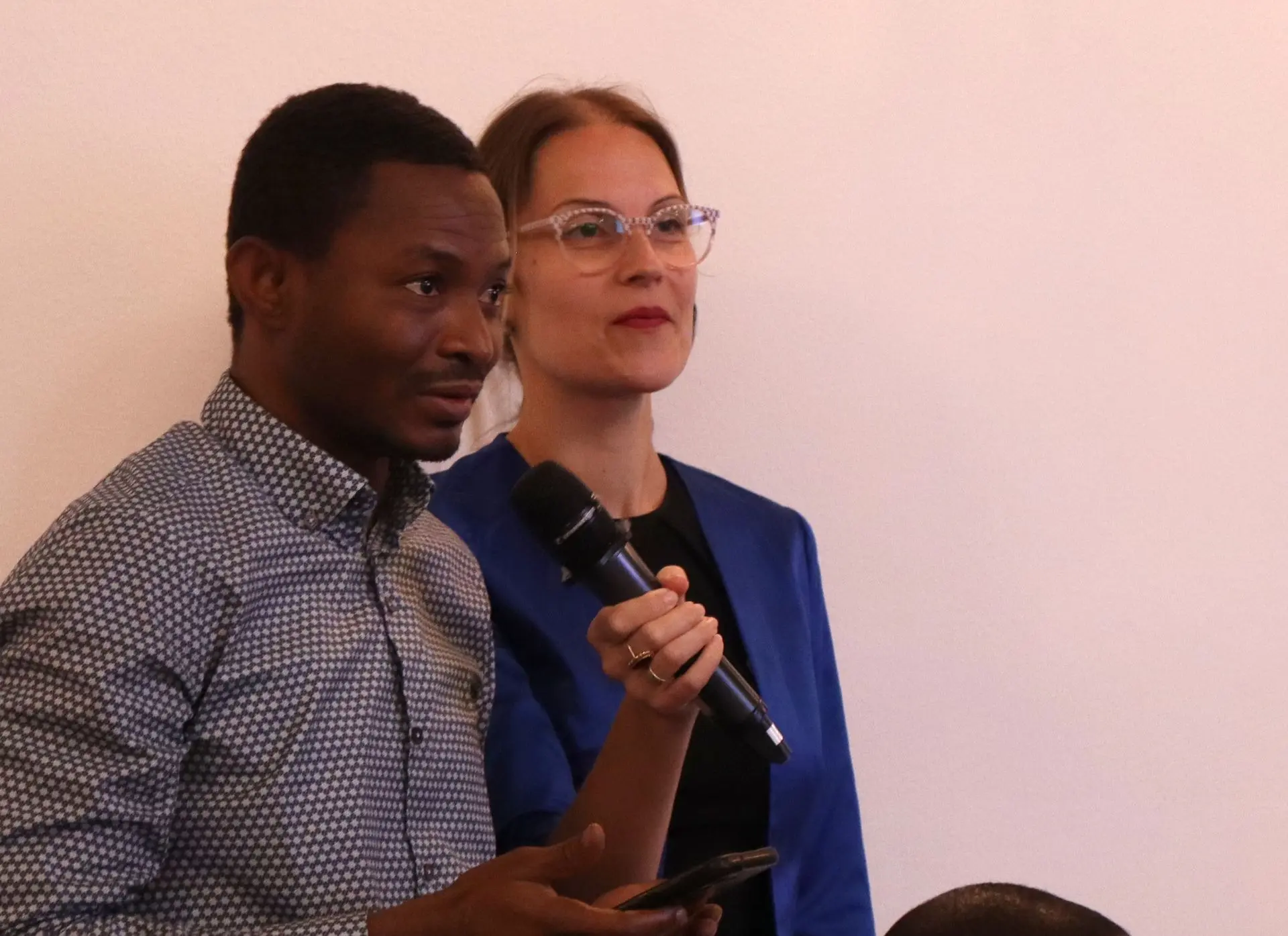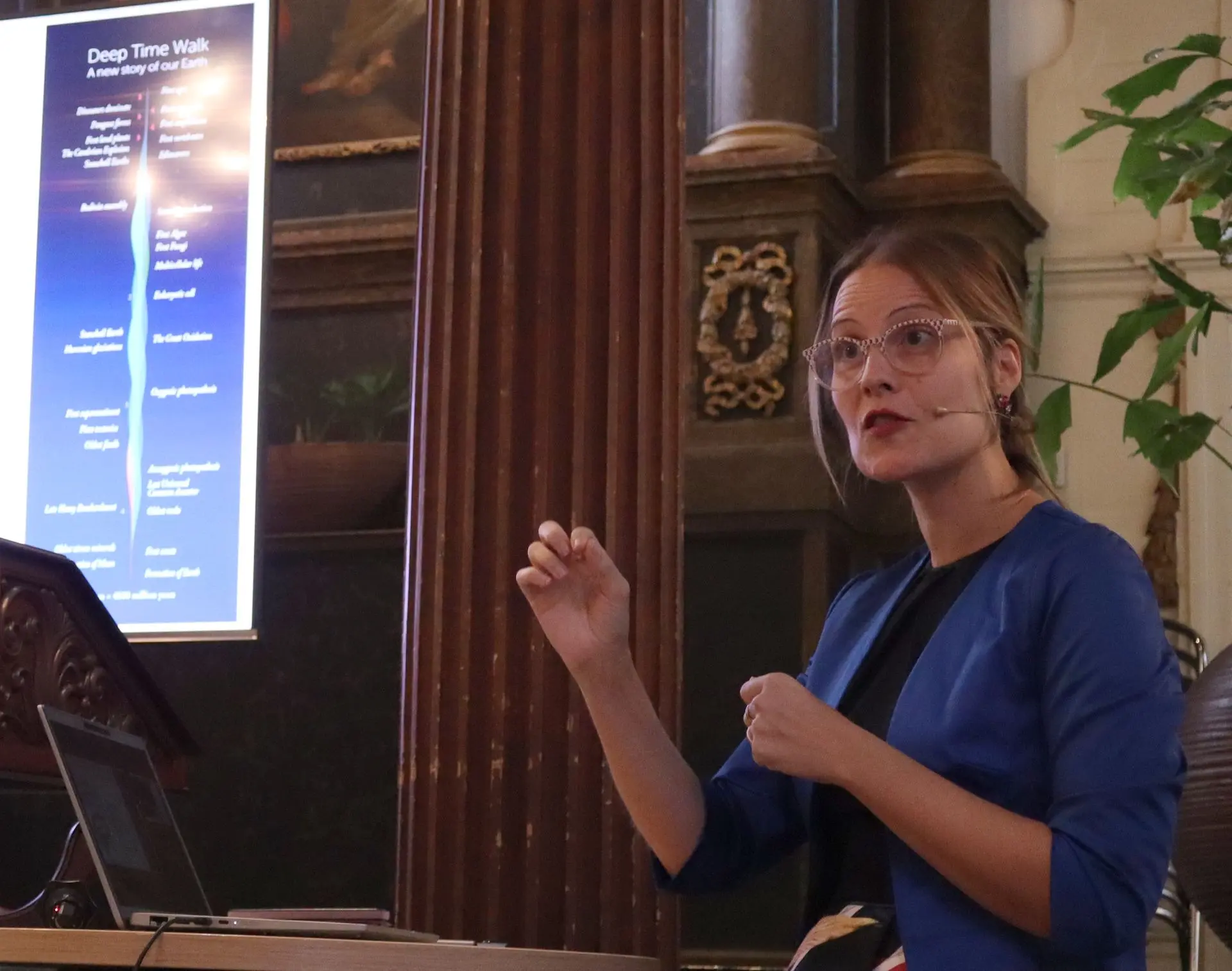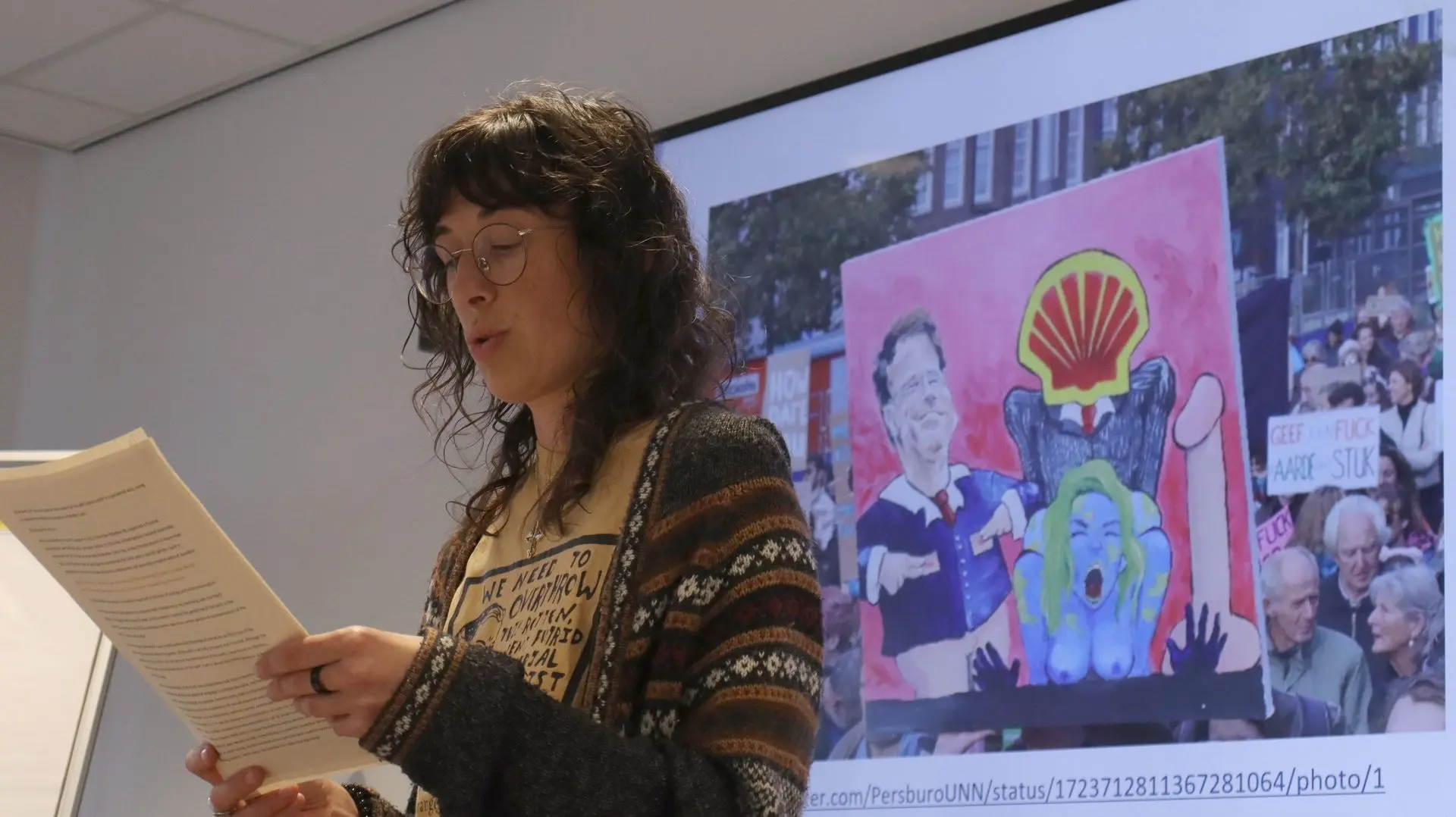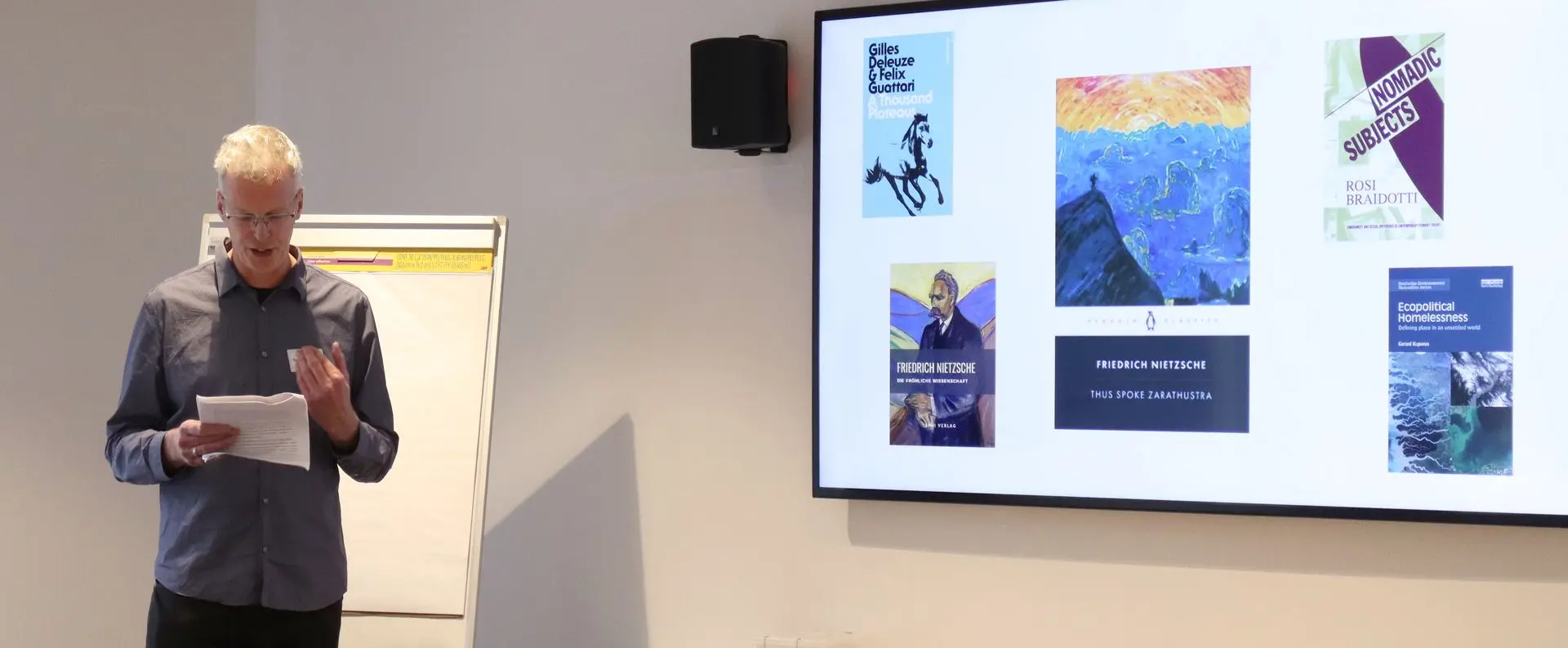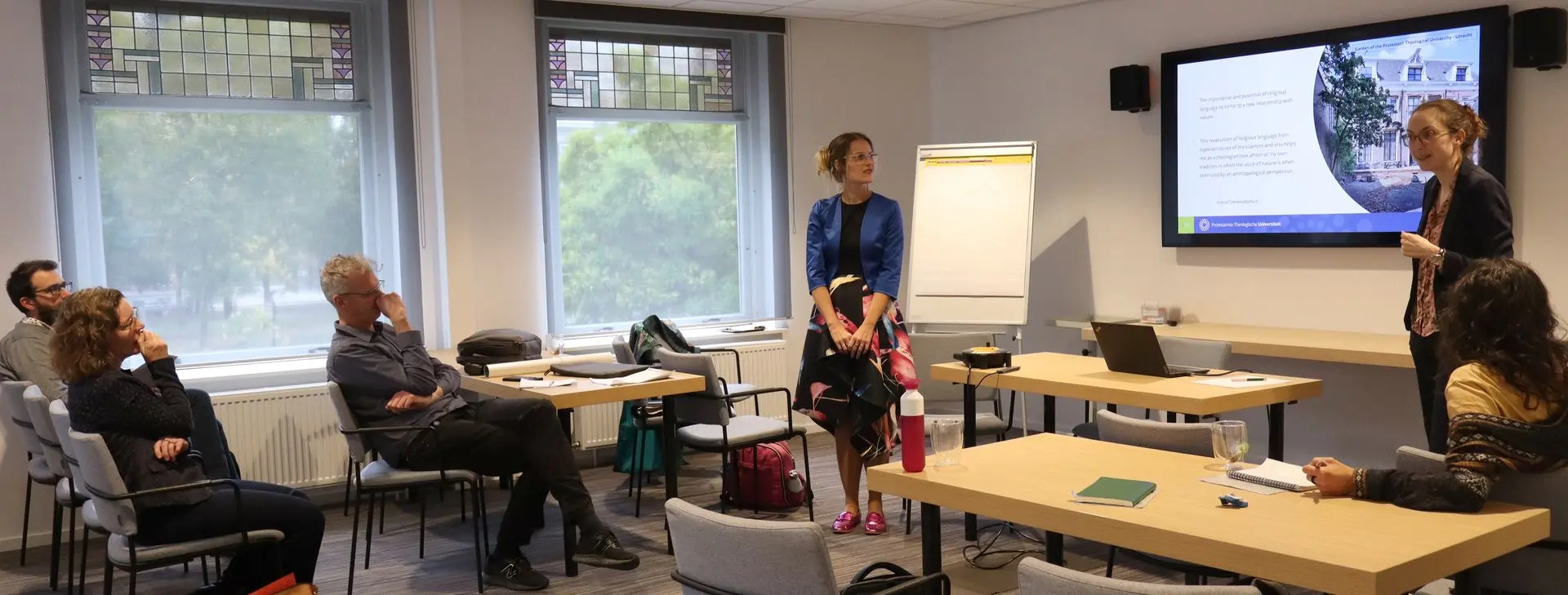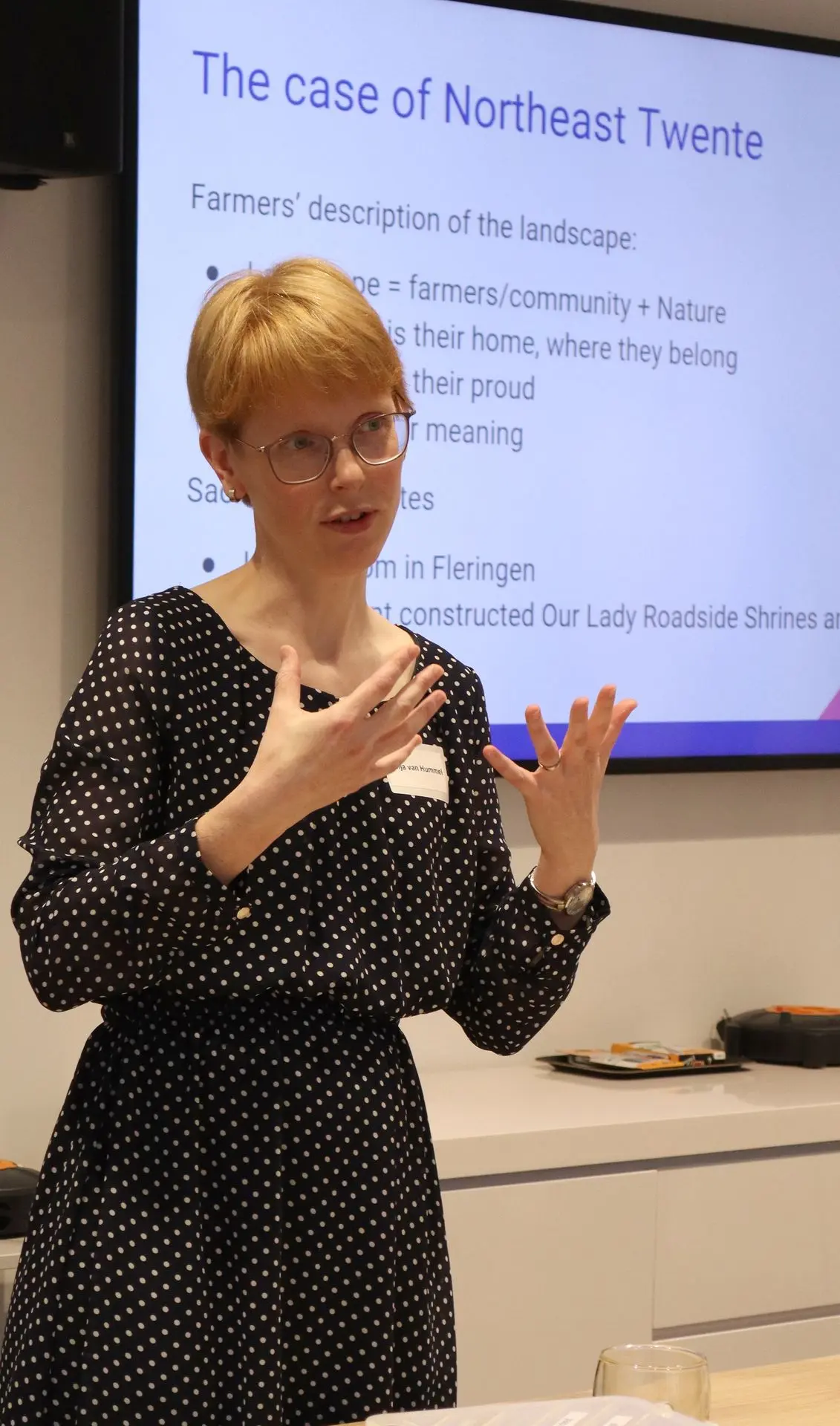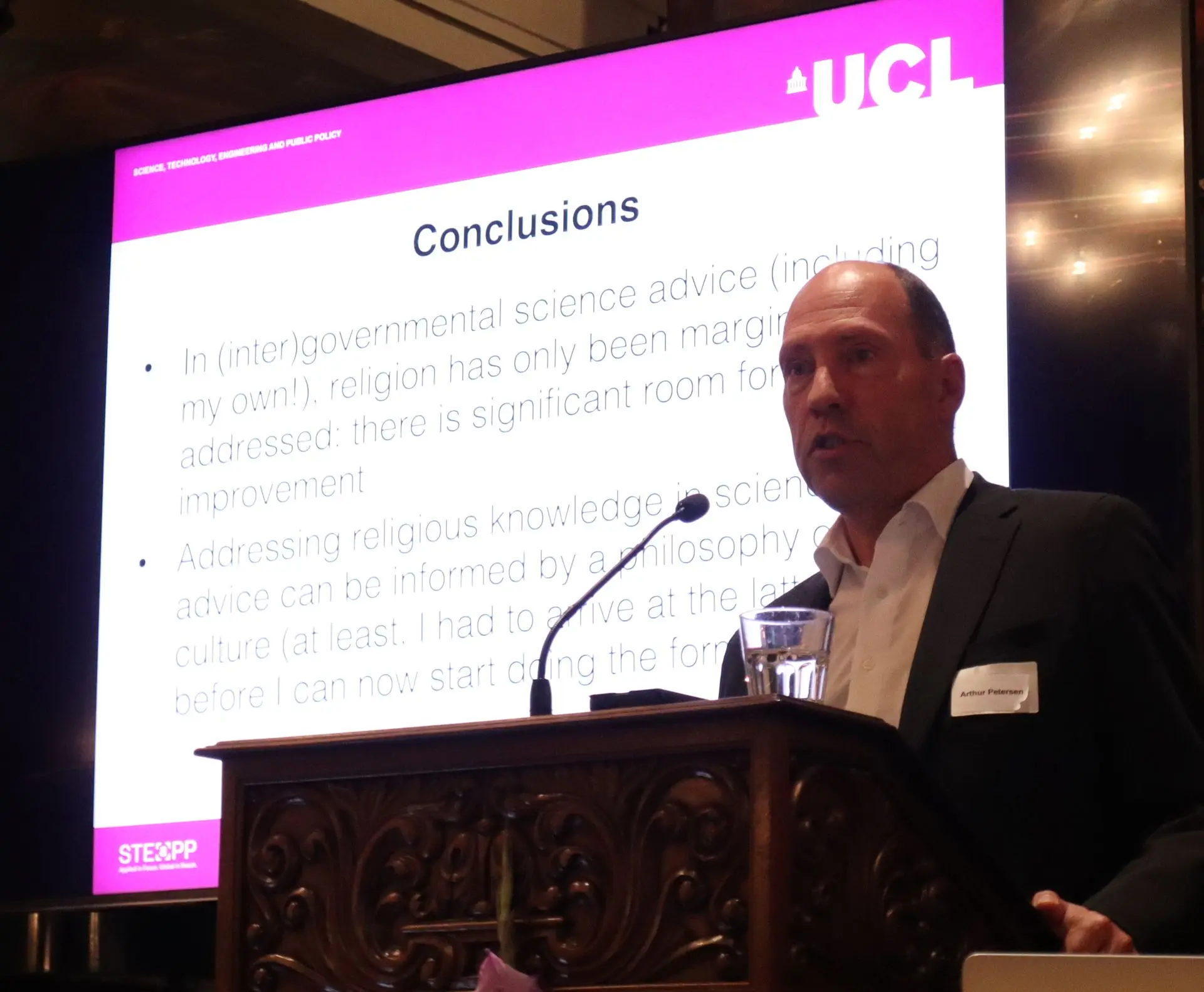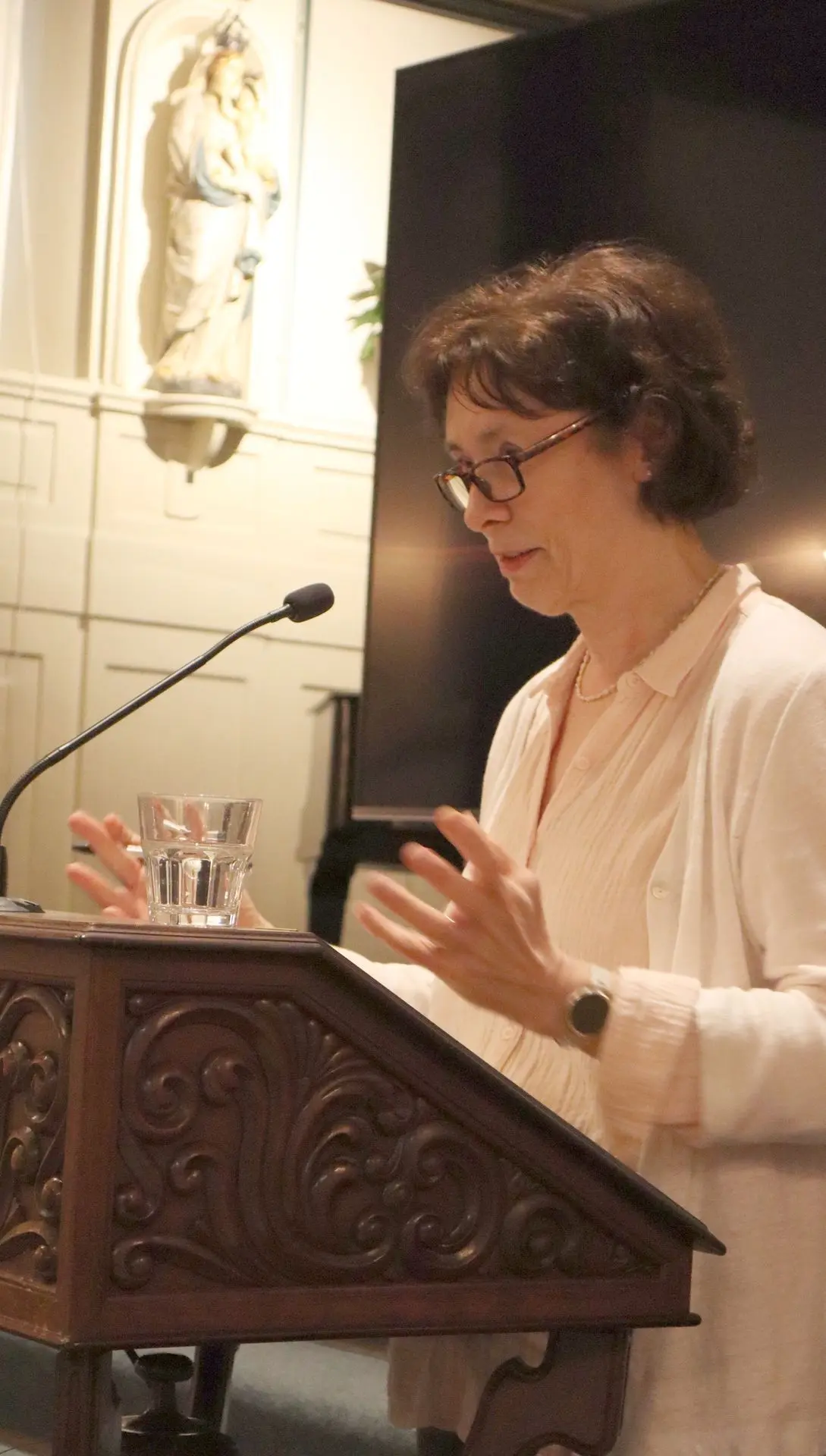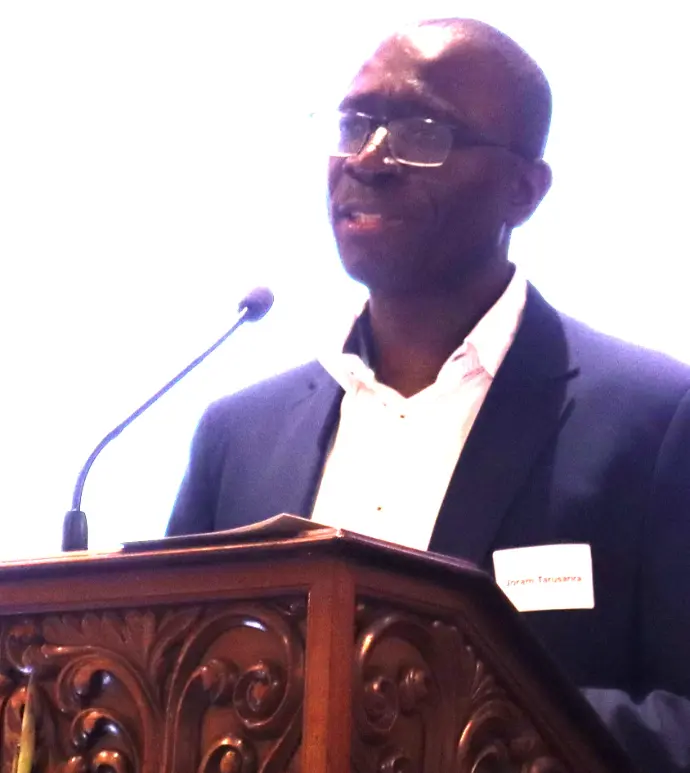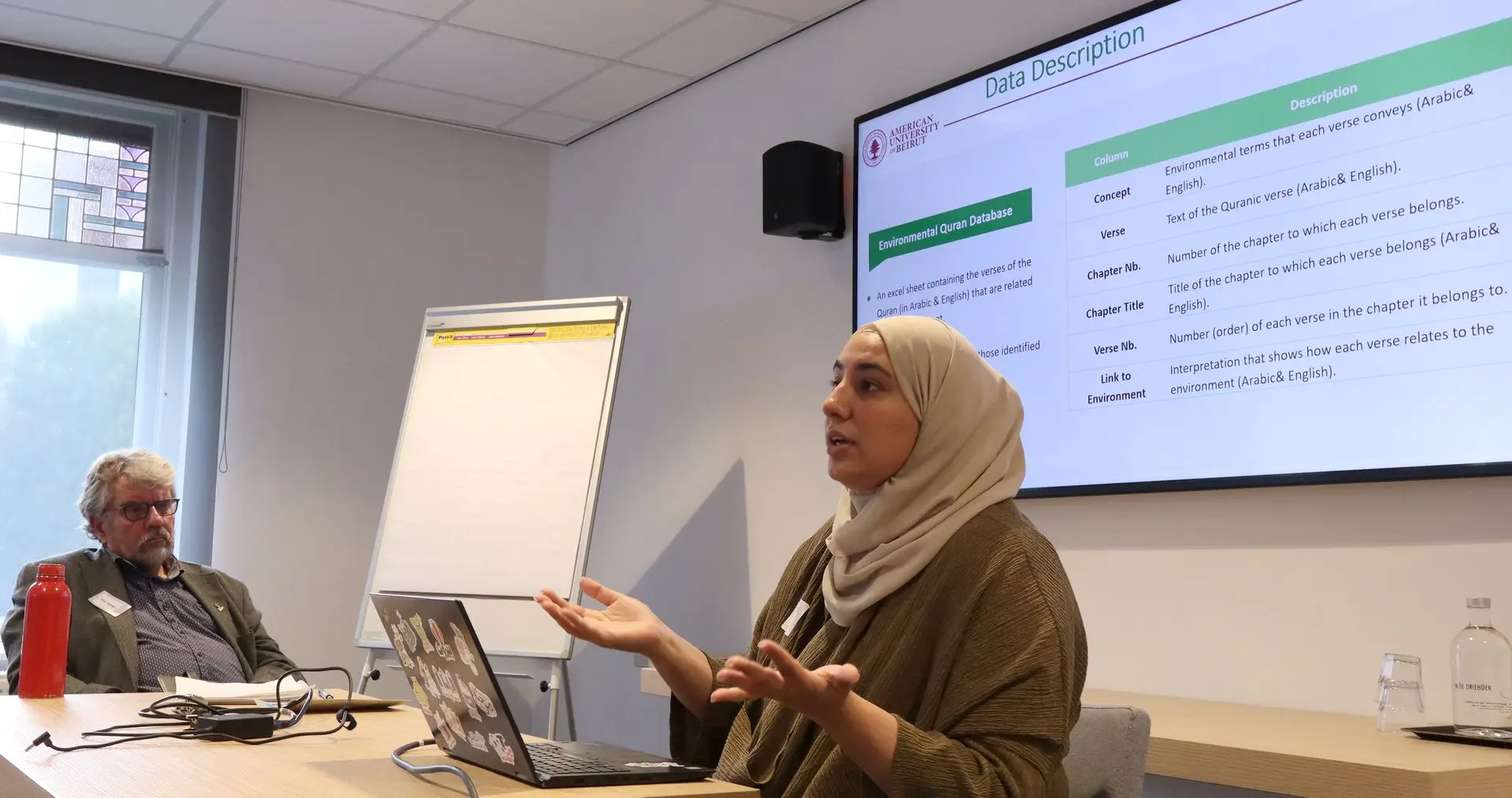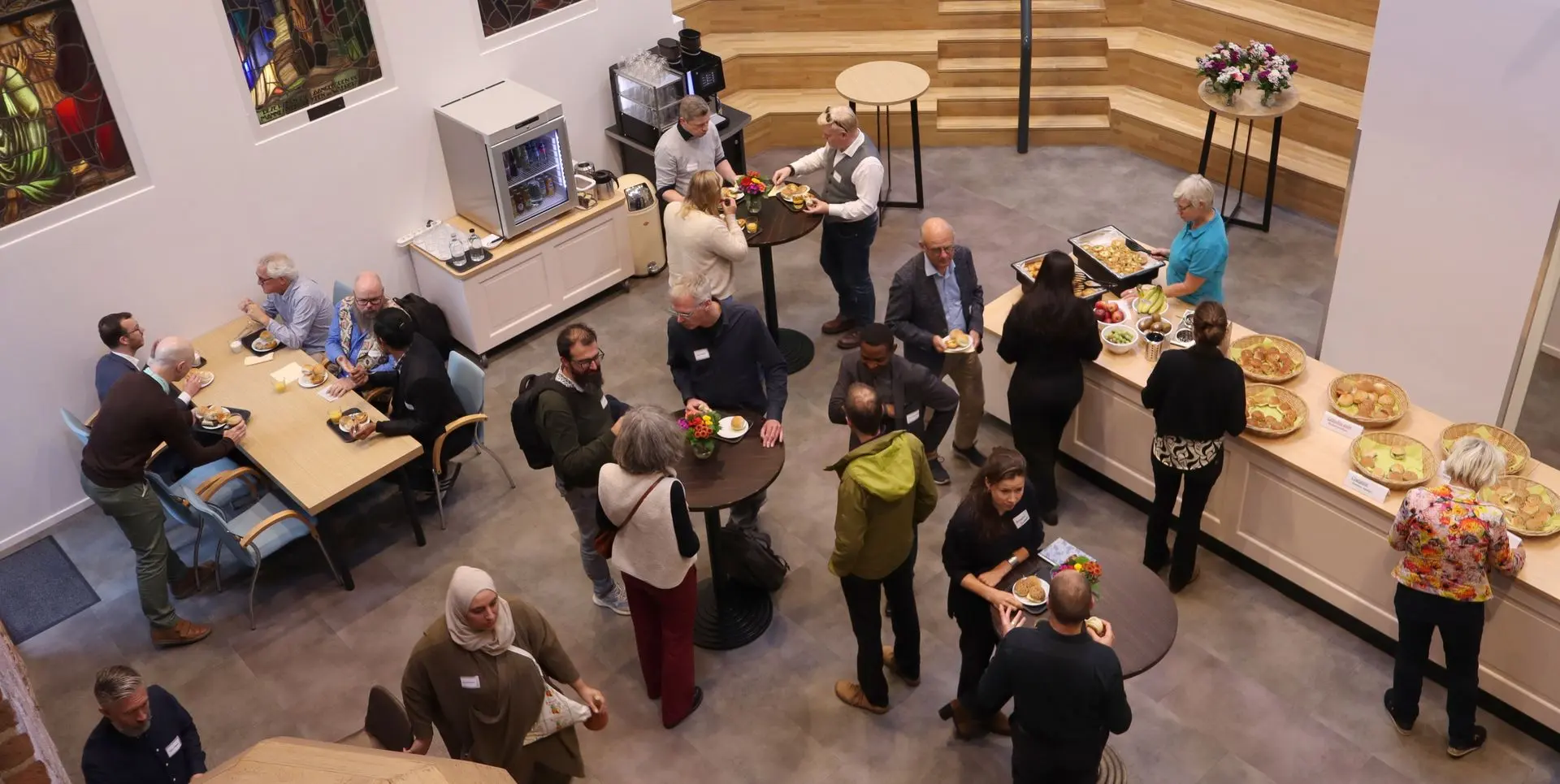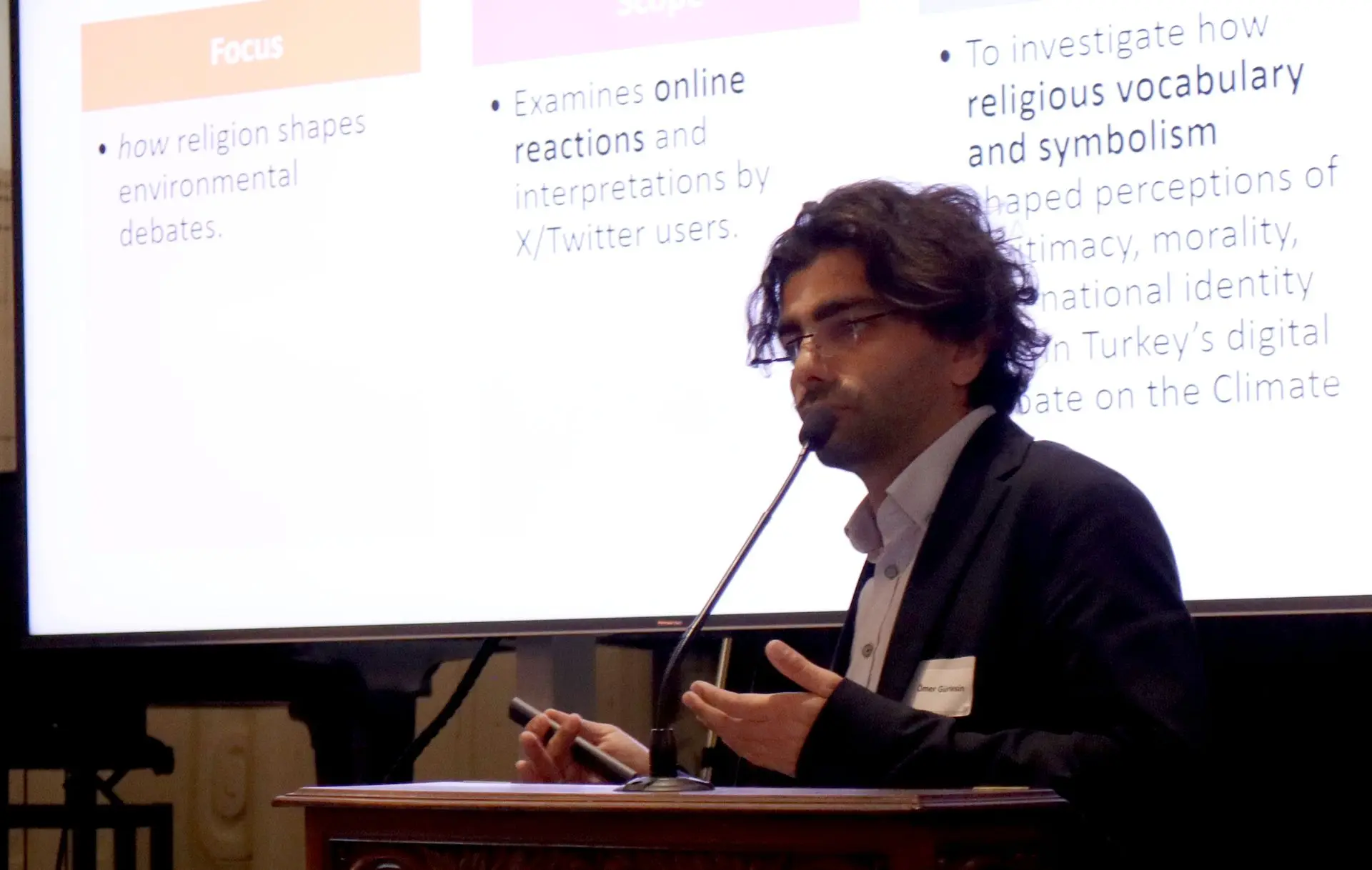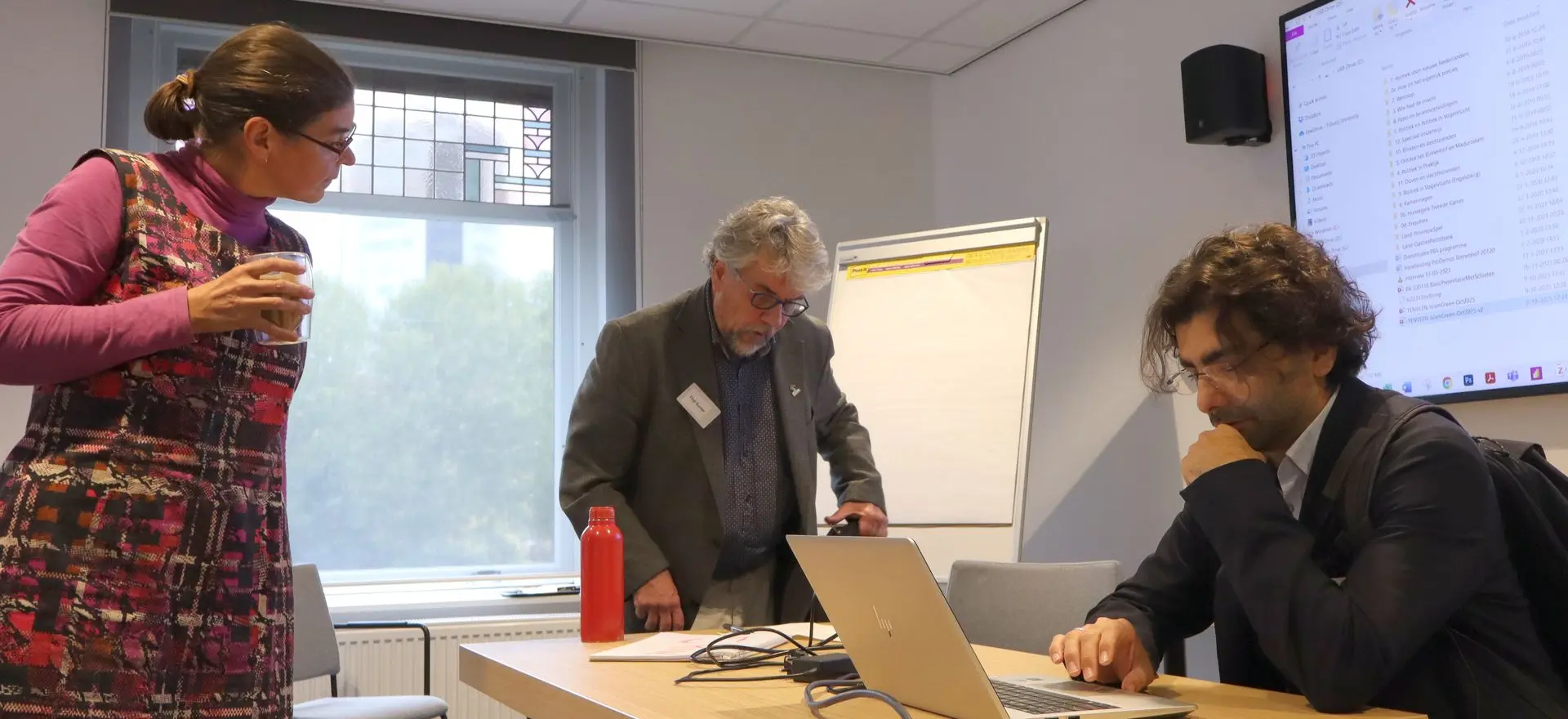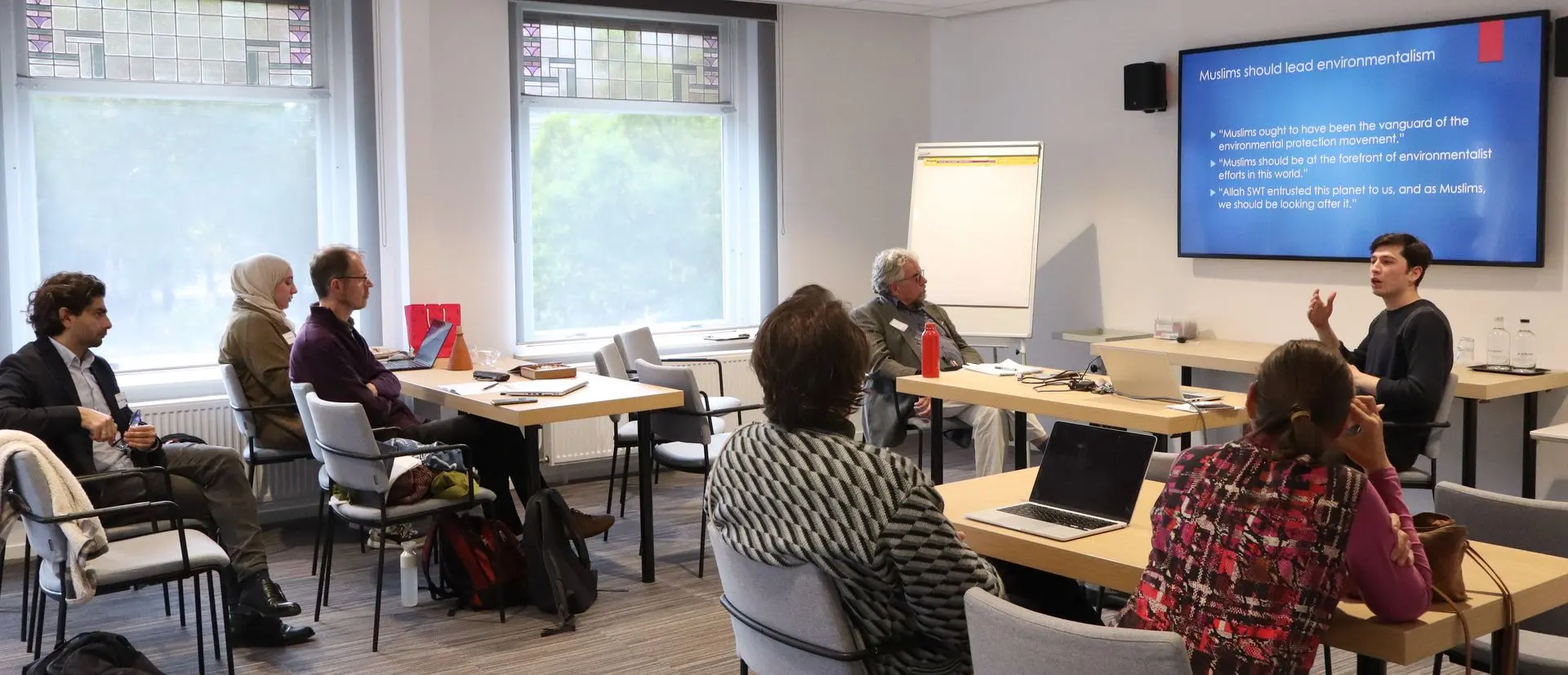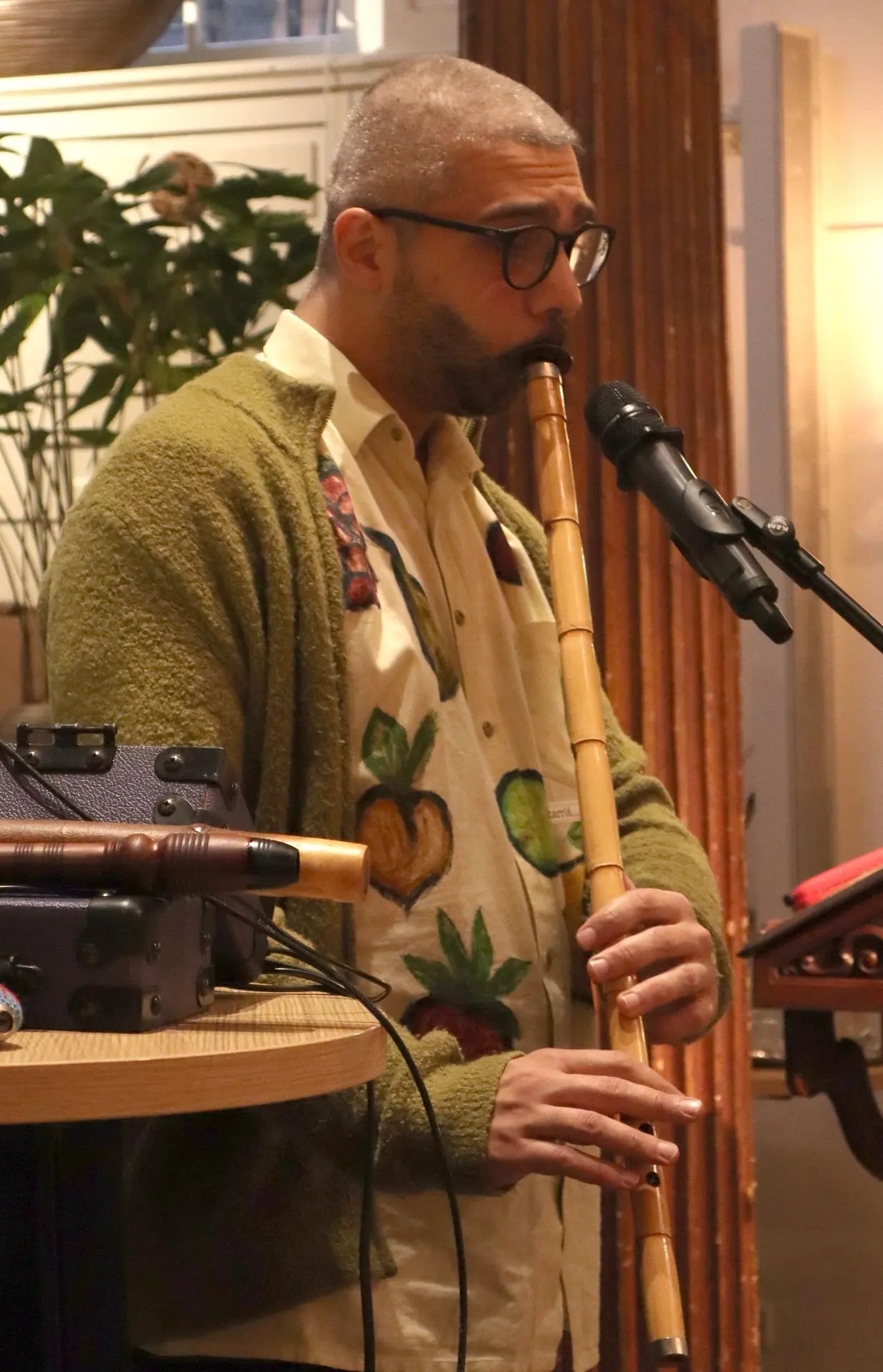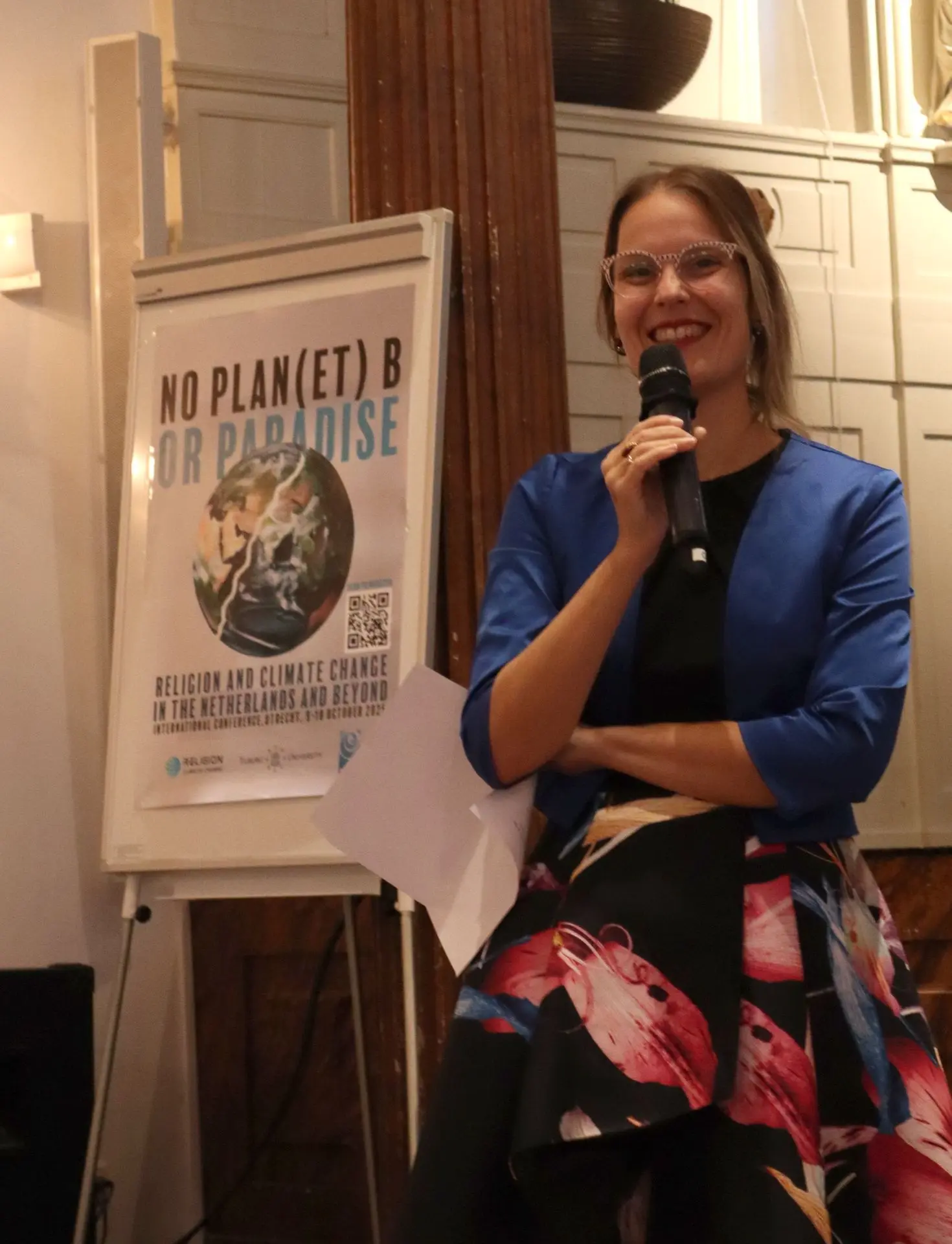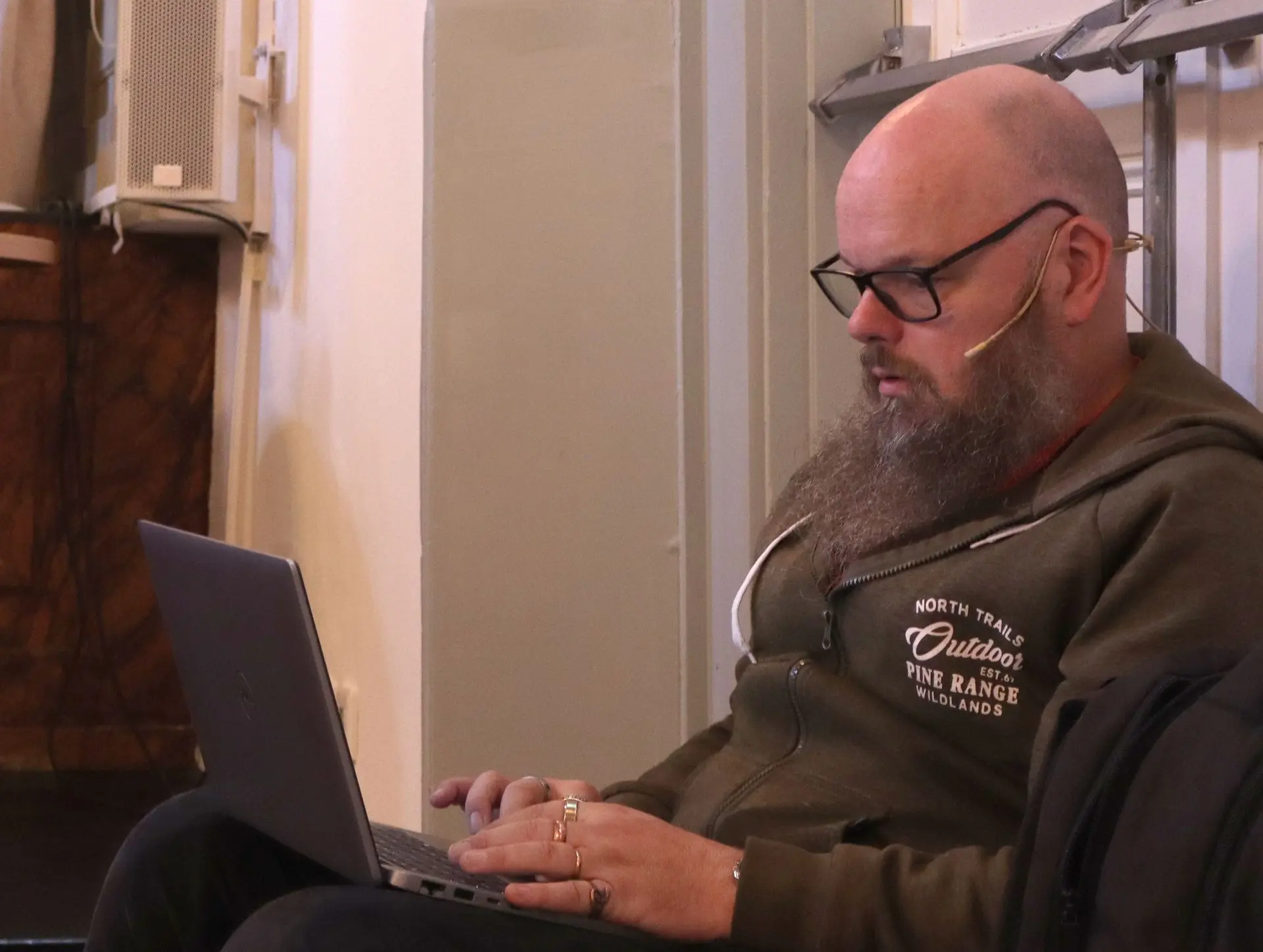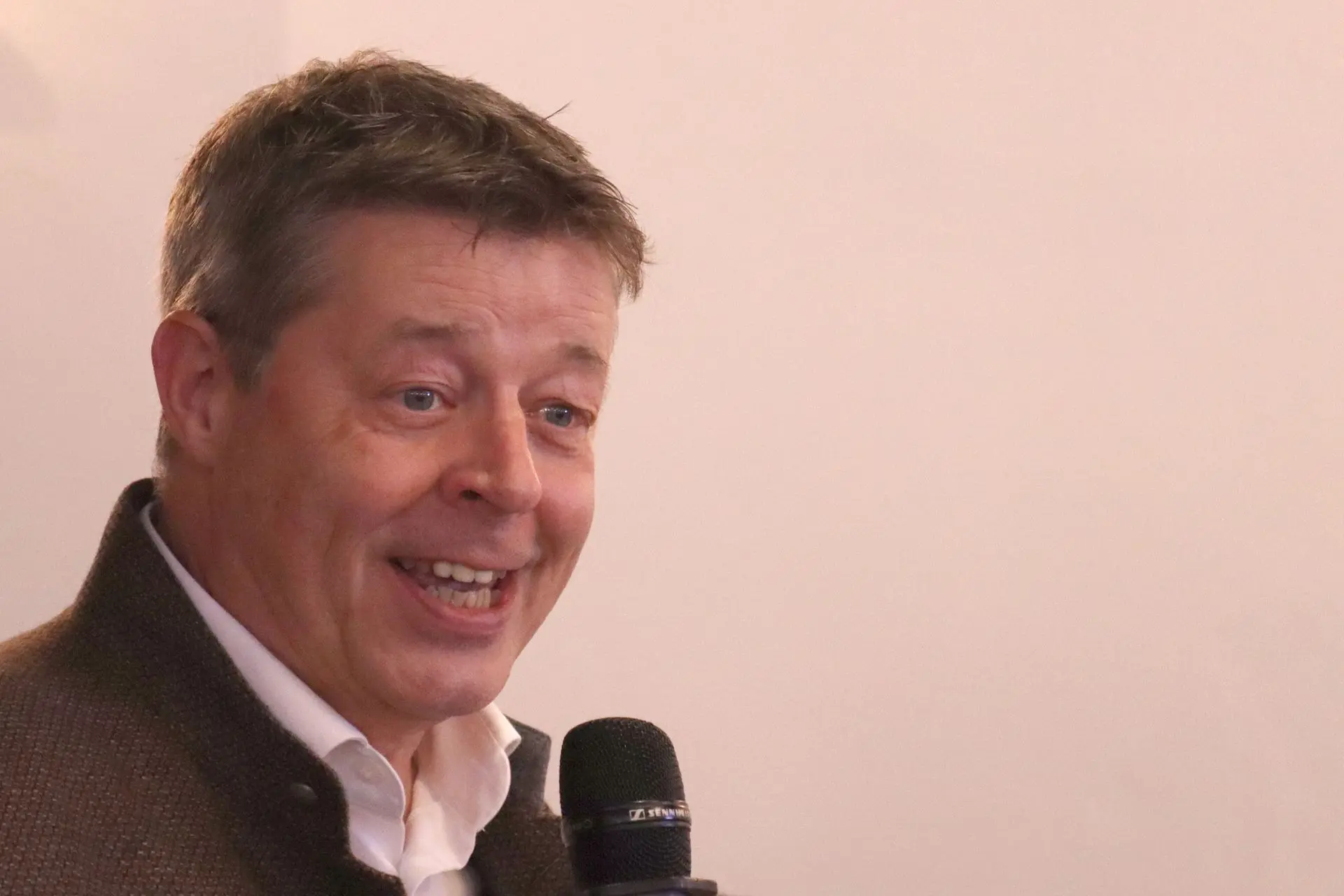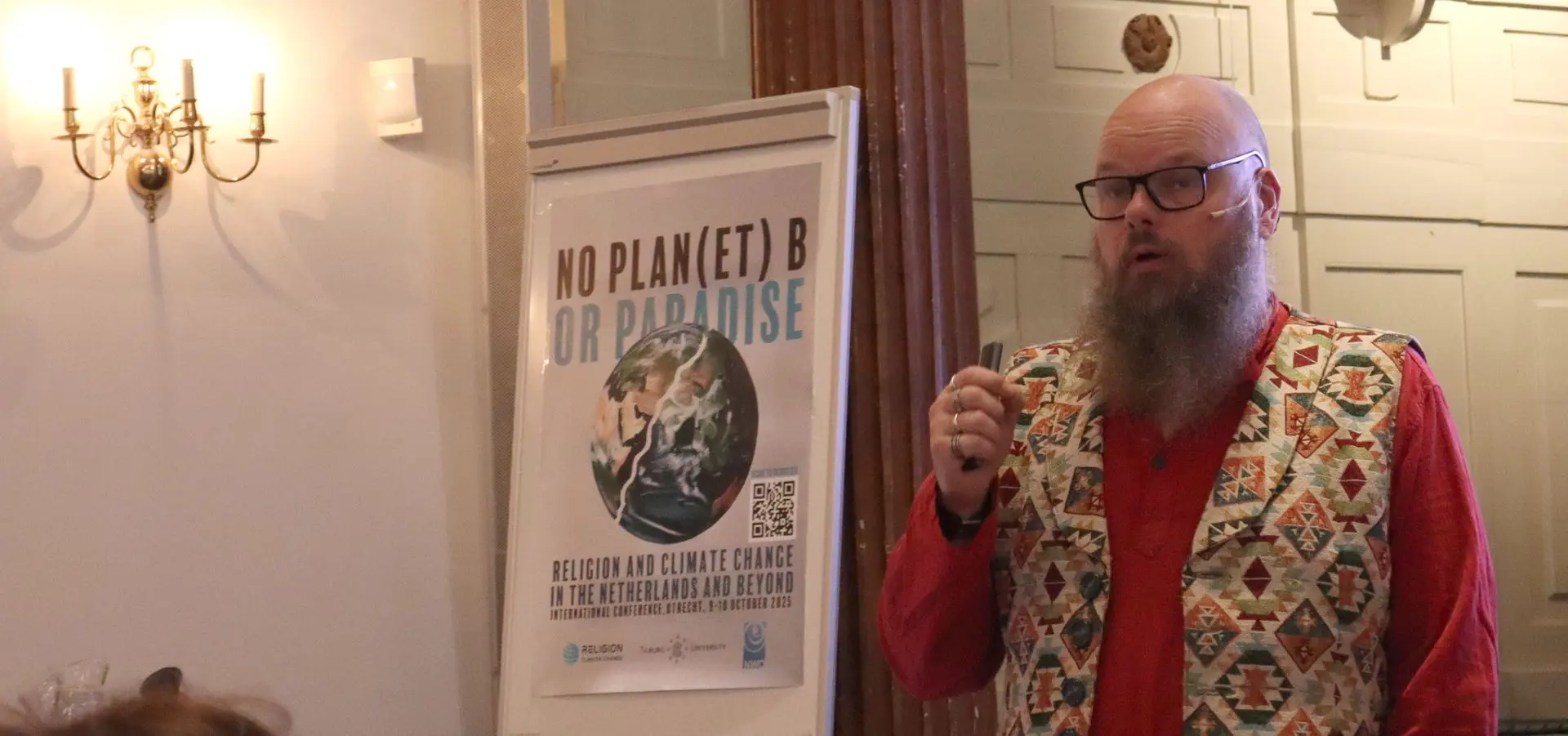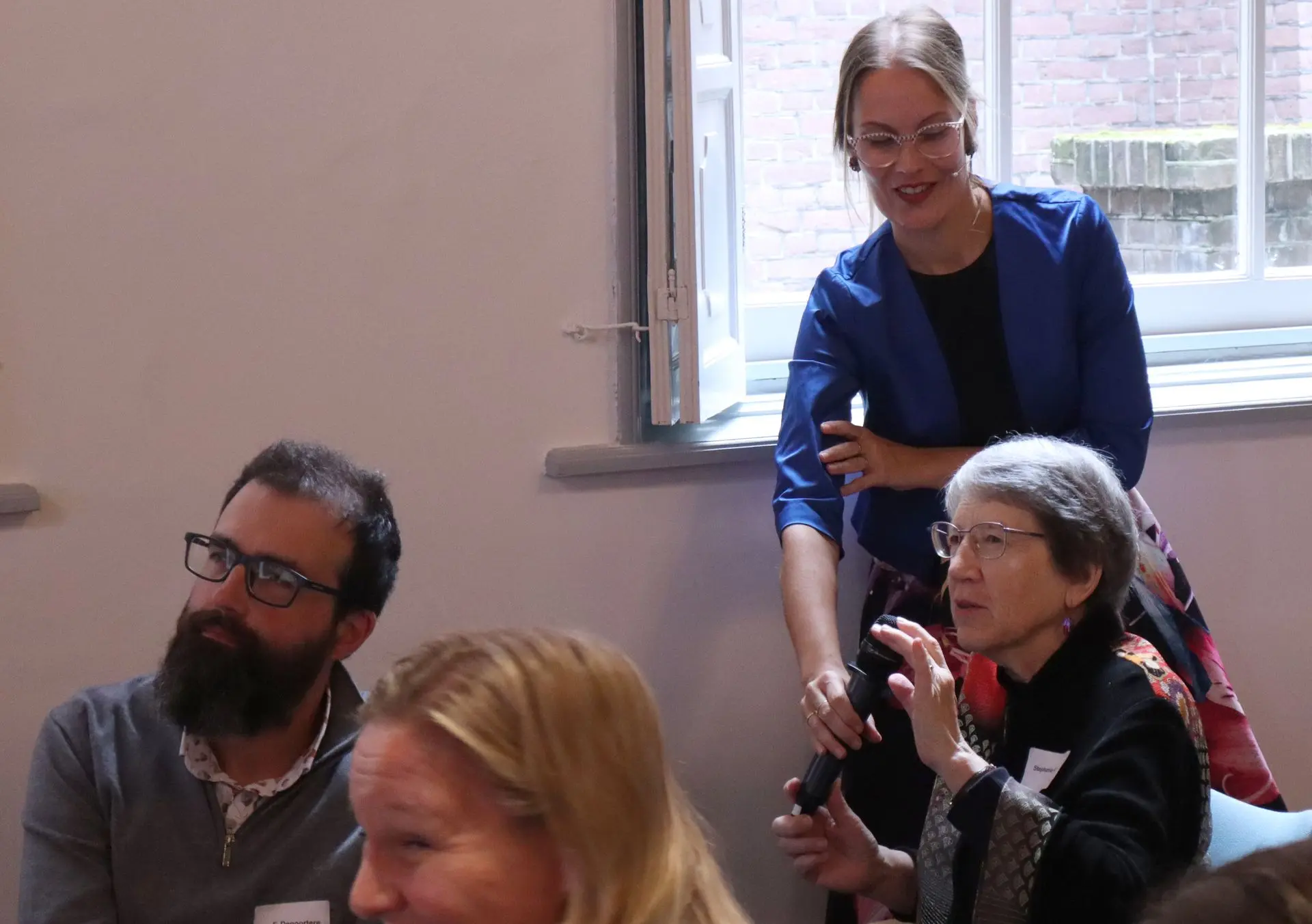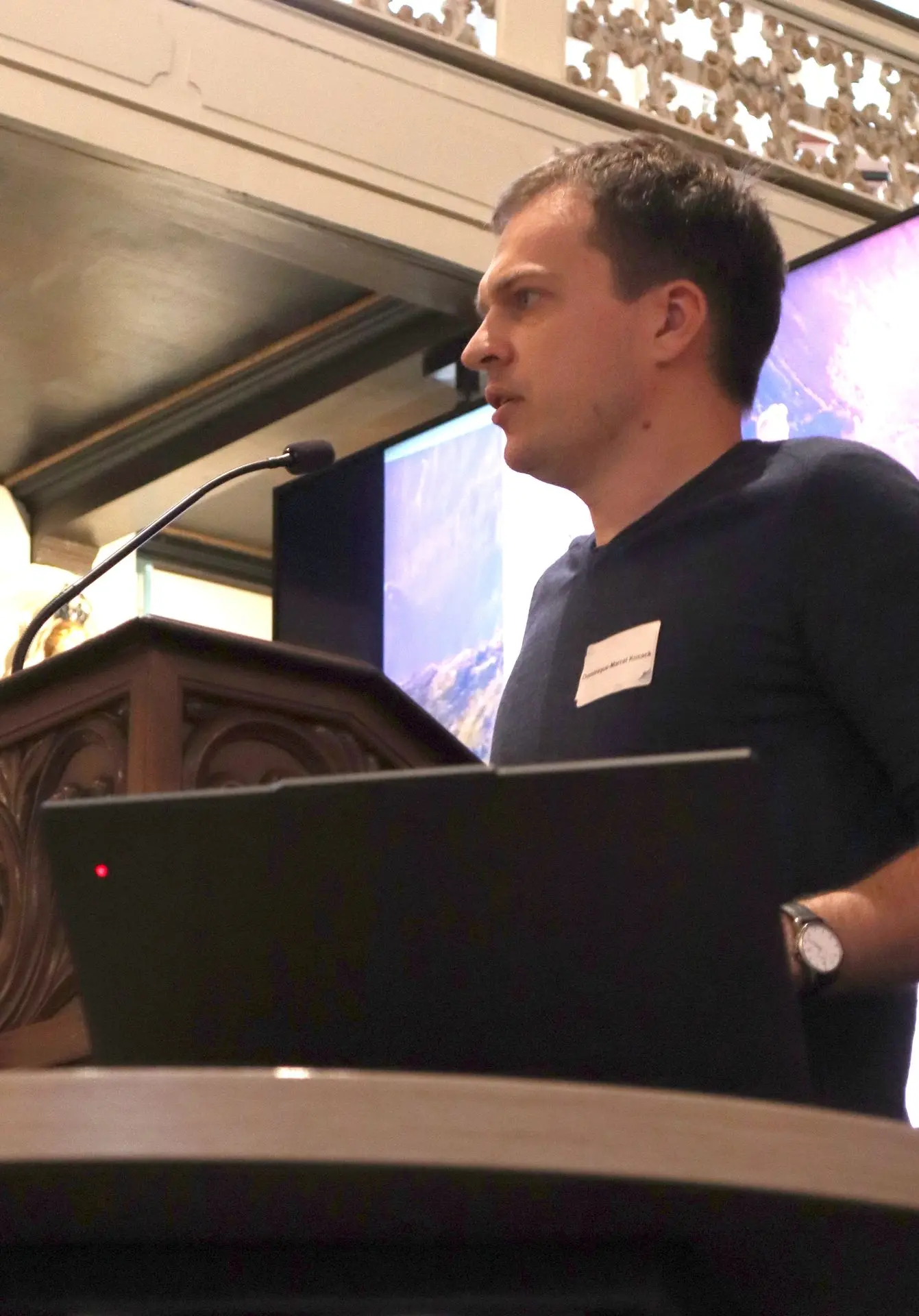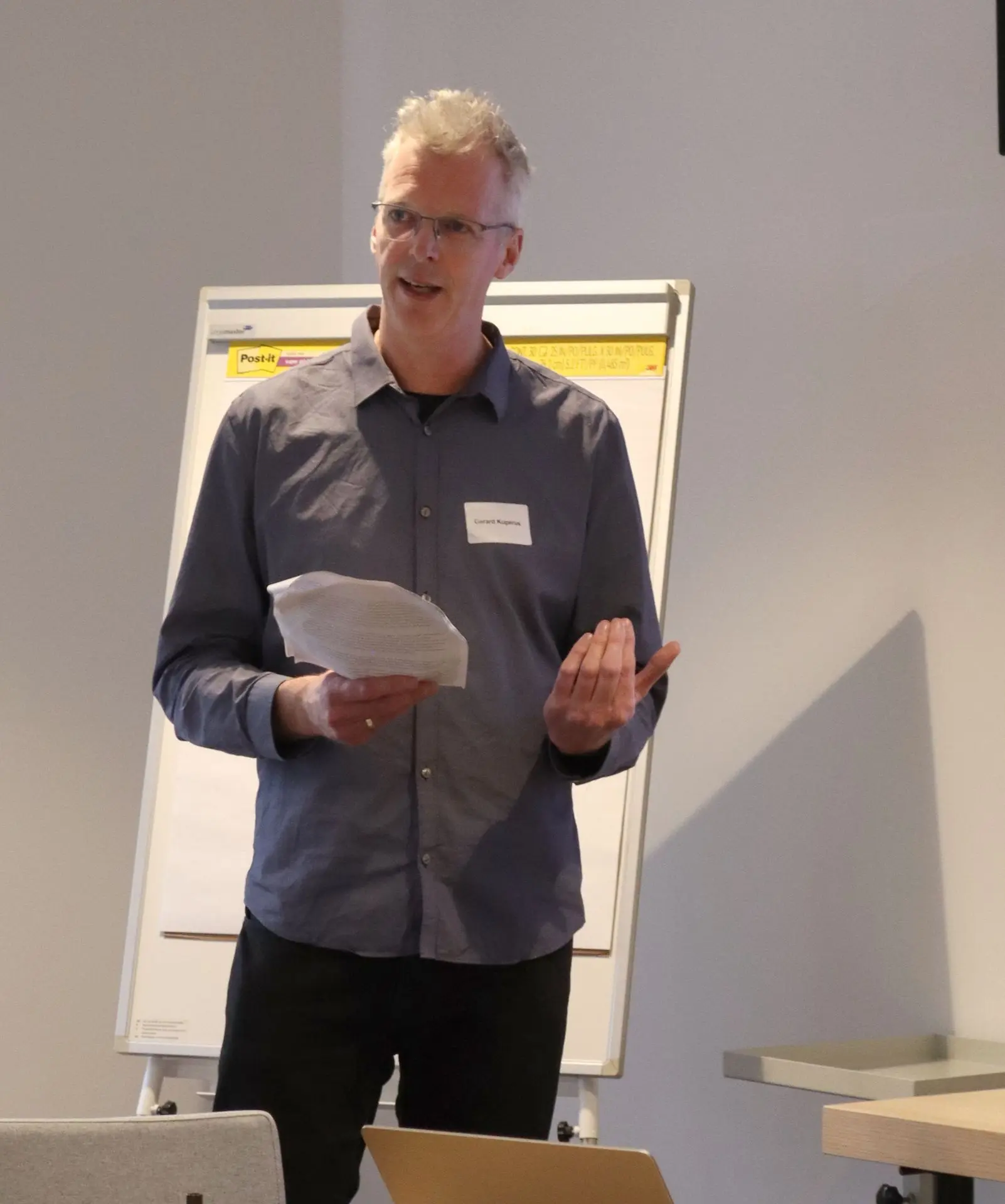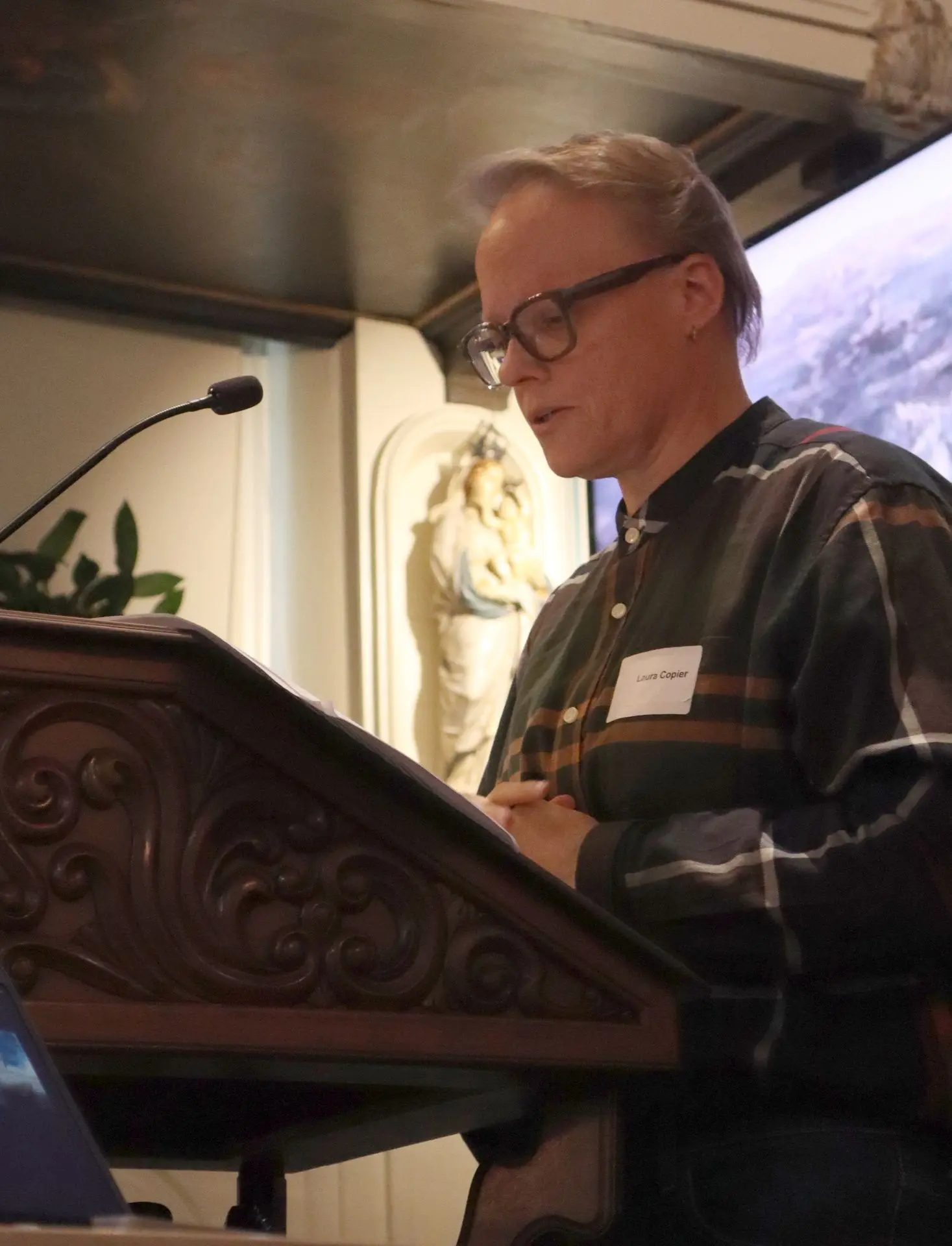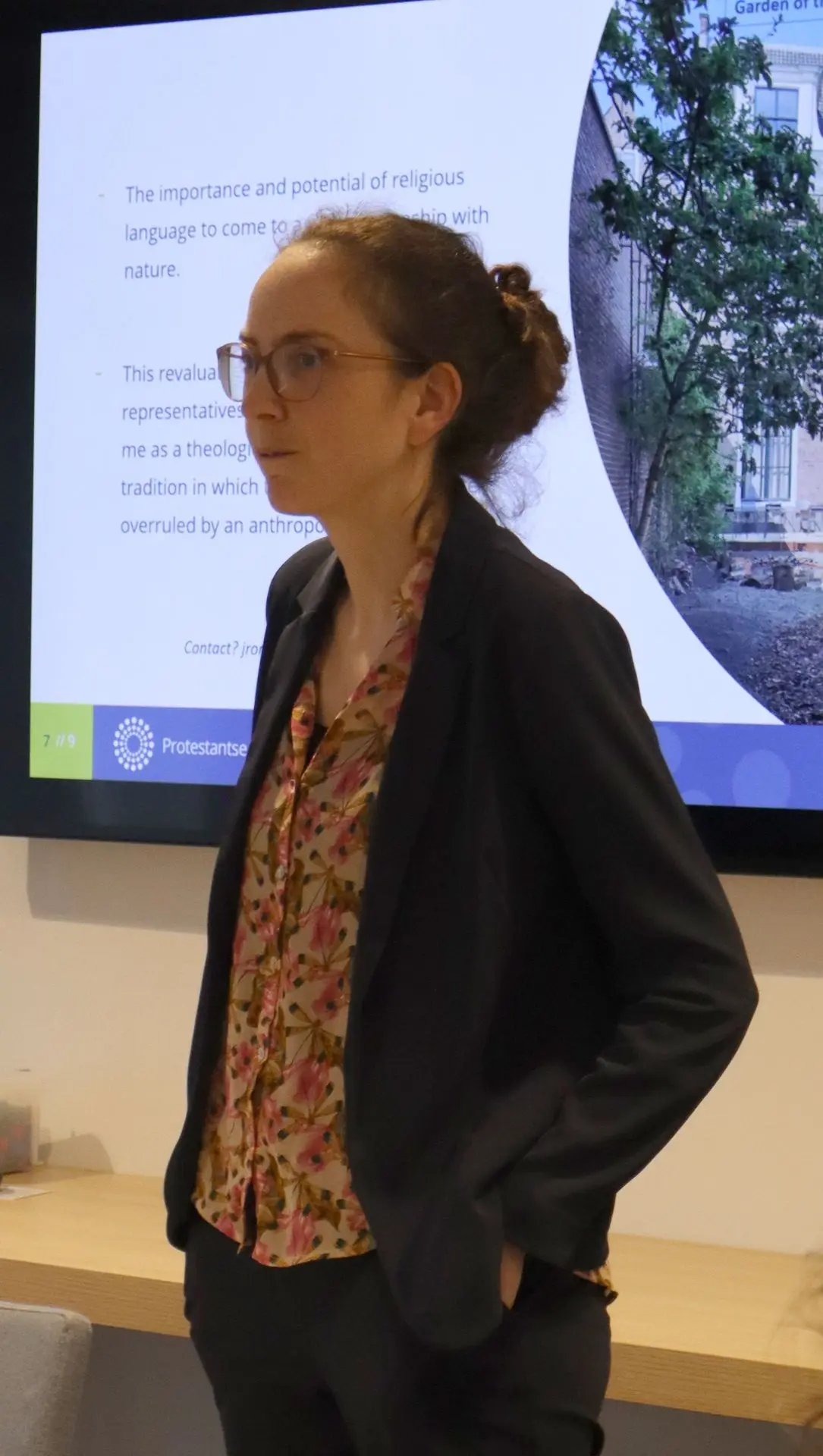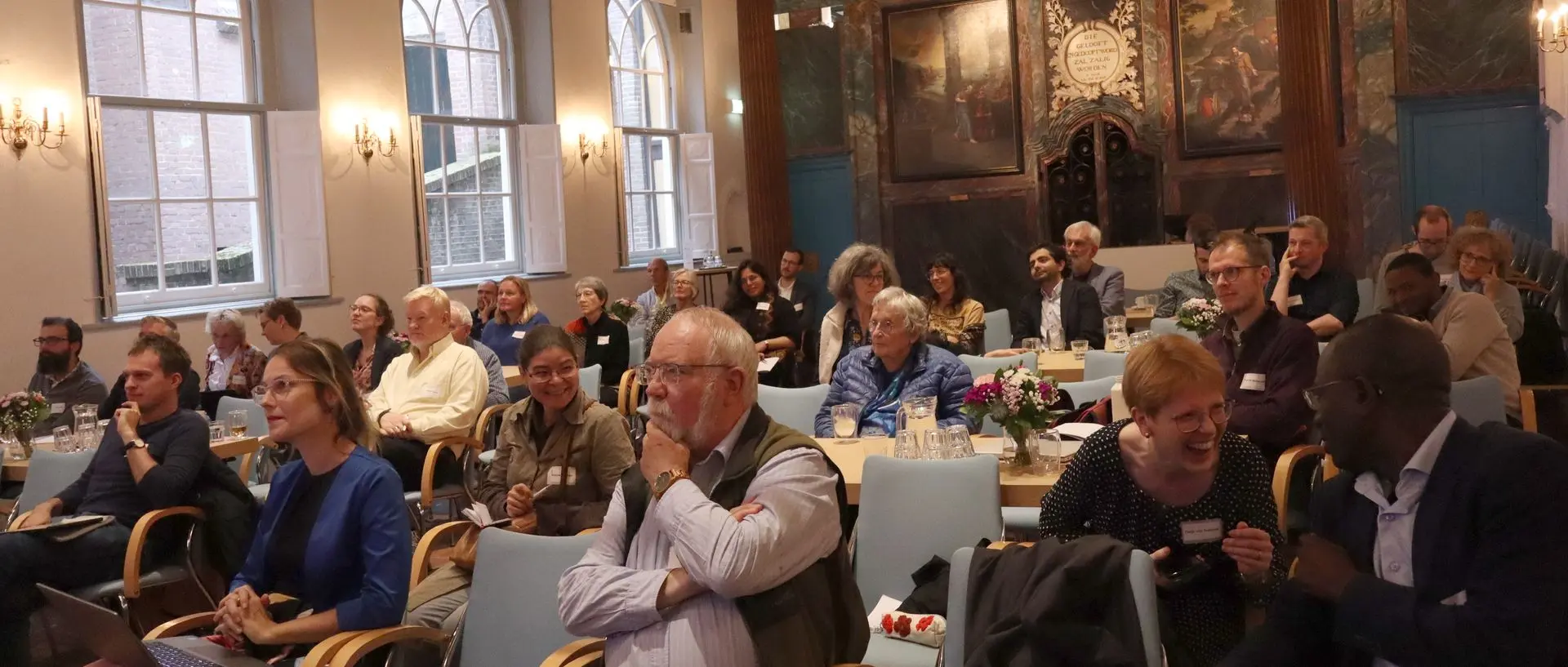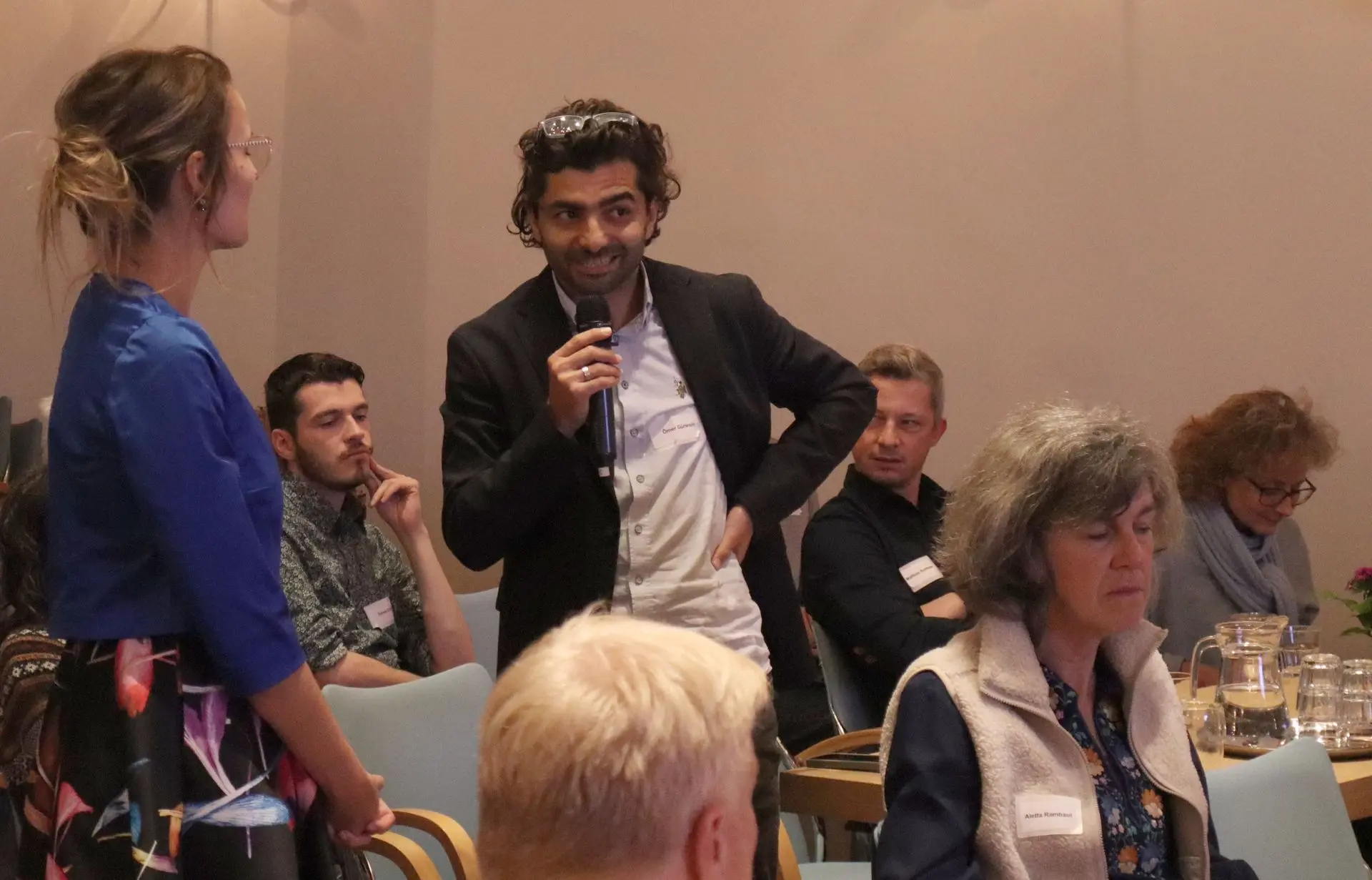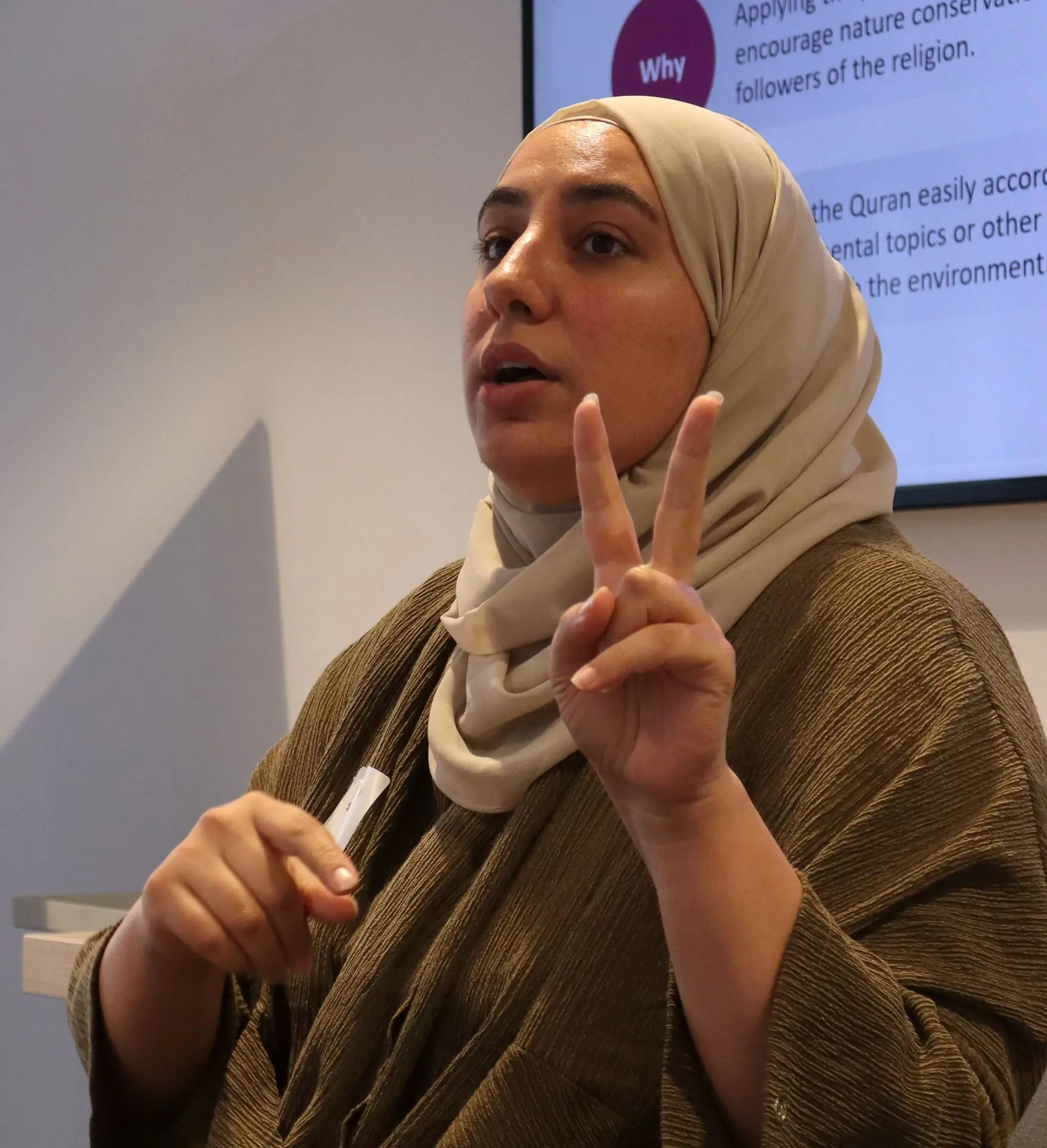Religion and Climate Change
No Plan(et) B or Paradise?
Report from the International Conference in Utrecht, October 9–10, 2025
The international conference “Religion andClimate Change: No Plan(et) B or Paradise?” took place on October 9 and 10, 2025, at In de Driehoek in Utrecht. The venue, combining a historic chapel with contemporary architecture, reflected the theme of the conference: how historical religions may offer a way to interact with the climate change narratives.
The event was organized by the Research Group on Religion and Climate Change, and brought together scholars who explore how theology and religious studies can contribute to the ecological debate. The conference gathered researchers, students, and interested participants from the Netherlands and around the world. It explored how different religions and worldviews can respond to environmental destruction and help create a more sustainable relationship with the Earth.
The diversity of the program was striking, with presentations discussing communities from across Africa, Europe, Asia, and the Americas. Interfaith perspectives including Buddhist, Islamic, and Christian viewpoints highlighted how different religious communities engage with climate change. Topics ranged from sacred landscapes and digitalizing Islamic environmental narratives to religion inspired climate skepticism, Christian vocabularies in climate discourse, and representations of the earth in times of ecological crisis.
The title ‘No Plan(et) B or Paradise?’ captures the motivation and overall mood of conference. “No Plan(et) B” conveys a sense of despair, reminding us that there is no alternative planet. In contrast, “Paradise” evokes hope in transformation. Together, the title expresses both the gravity of the environmental crisis and the enduring hope of redemption.
Throughout the conference, speakers reflected on this tension between despair and hope. The despair arising from the realities of climate change was met with the hope that faith offers a belief in the potential for renewal and moral action. Many presenters emphasized the deep spiritual and personal relationship individuals share with nature and how this connection can nurture hope for a better future. A recurring theme in many talks was the importance of language and how it shapes our actions toward the environment. Scientific and political discussions of climate change often use technical or economic terms that can feel distant or abstract, whereas religious language speaks directly to people’s hearts and moral imagination.
In addition to academic papers, the conference included a musical intermezzo featuring the nay, drawing on Indonesian and other world traditions. The musician incorporated recorded sounds from an anthill, playing the nay as if communicating with the ants. This performance invited participants to reflect on the interconnectedness of all life and the relationship humans share with nature.
As the conference came to an end, one conclusion stood out: religion is not separate from the climate conversation. It can help shape how people understand their relationship toward creation. There may indeed be no “Plan B” for our planet, but as many speakers suggested, faith can help us reimagine what it means to live responsibly within “Plan A.” The conference reminded everyone that religion far from being a relic of the past remains a vital force for imagining and building a sustainable future.
Neha Zaidka


